CONNECTIONS
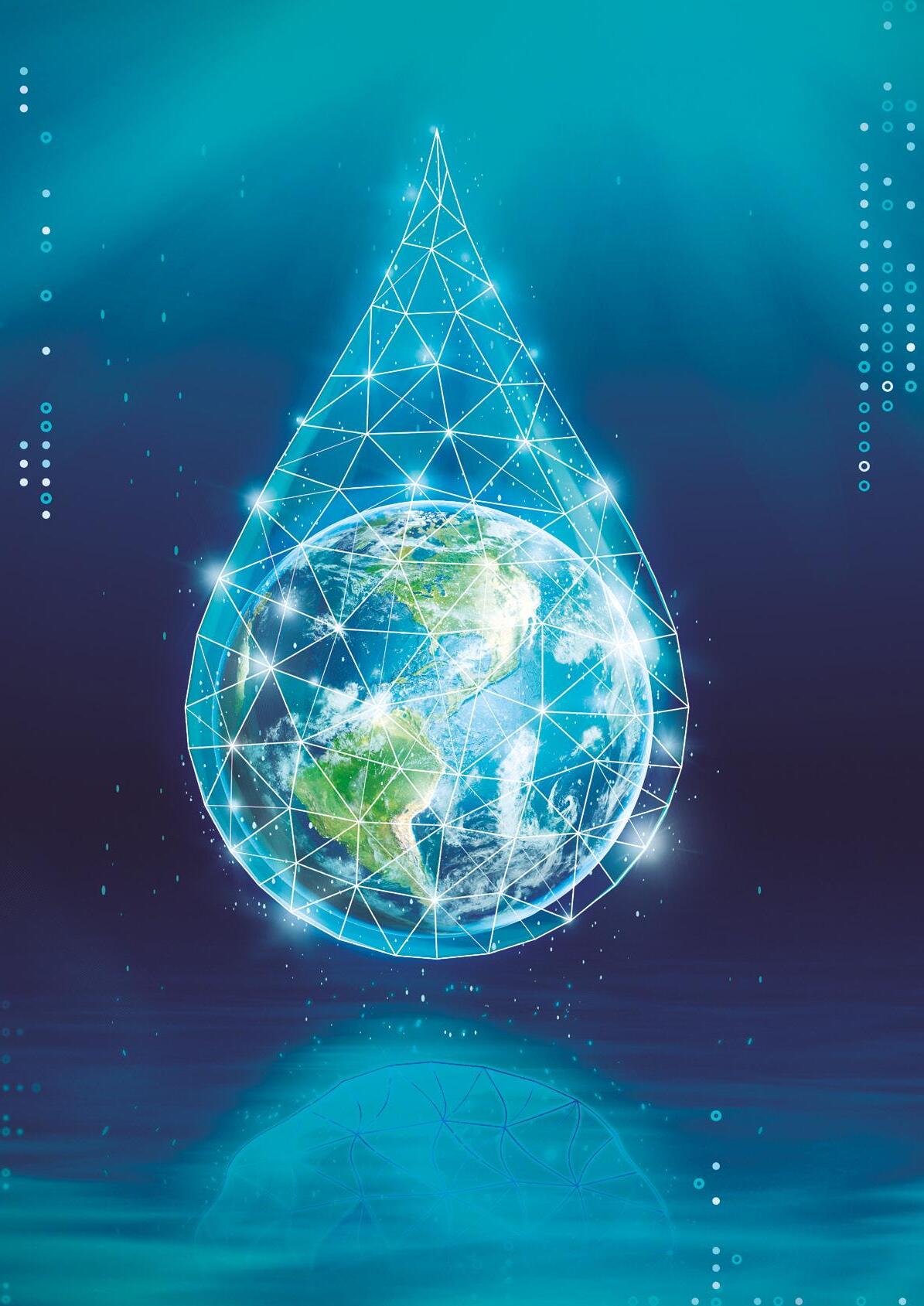

Revolutionizing Desalination for Global Water Use
Interview with Anousheh Ansari , XPRIZE CEO, 'behind the launch of XPRIZE Water Scarcity'
THE UNEXPECTED SOLUTION TO DESALINATION CHALLENGES:
DIRECT AIR CAPTURE
Page 25
THE WORLD IS GETTING WARMER AND THIRSTIER Page 19
ADVANCING WATER REUSE PLANT EFFICIENCY AND SUSTAINABILITY GOALS THROUGH THE SUCCESSFUL DEMONSTRATION OF ARTIFICIAL INTELLIGENCE
Page 29
UNVEILING THE FINANCIAL DYNAMICS: AN IN-DEPTH ENGINEERING AND ECONOMIC ANALYSIS OF WATER REUSE AND BRINE MINING
Page 33
Winter 2024 IDRA GLOBAL
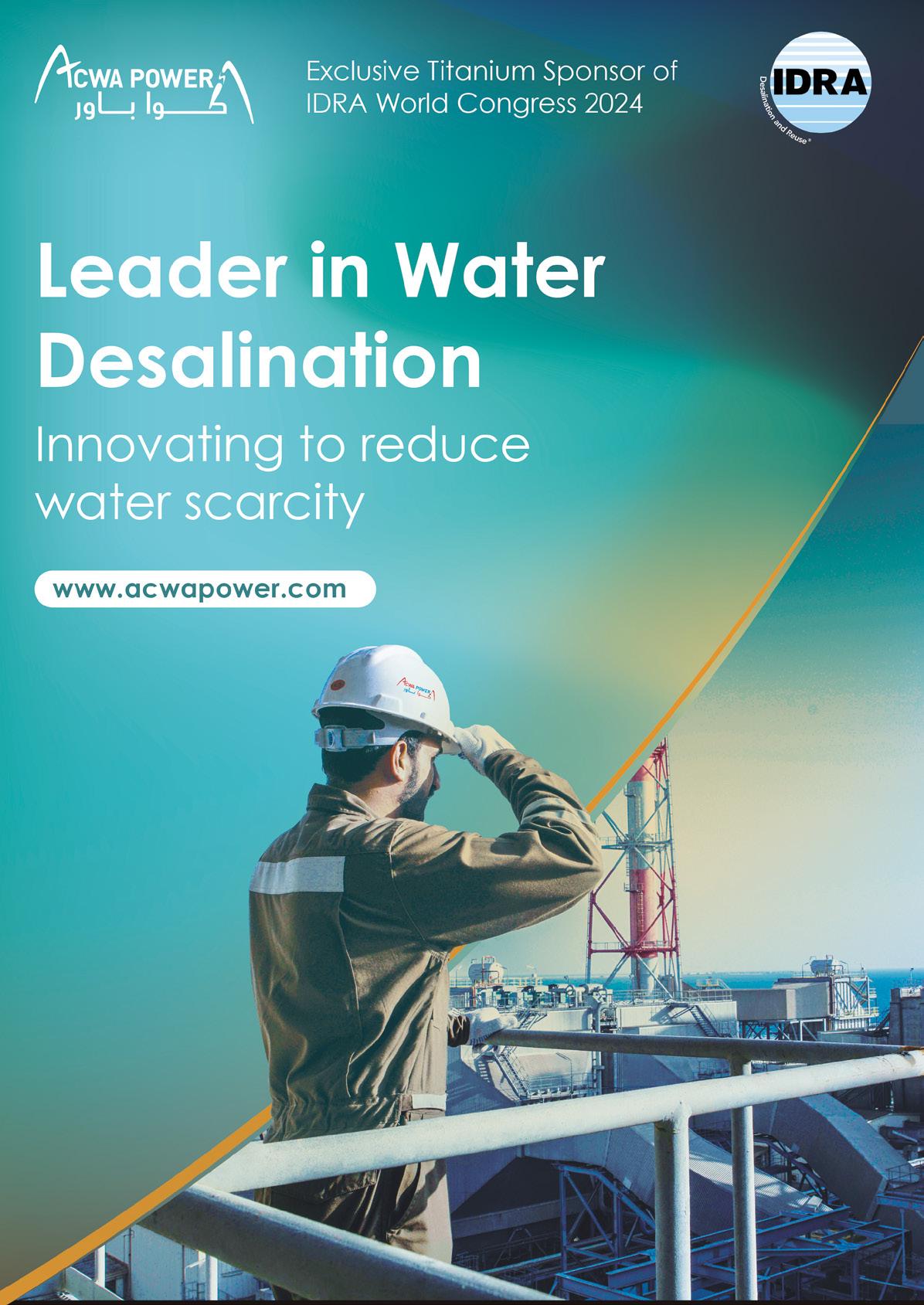
TABLE OF CONTENTS
MESSAGE FROM THE SECRETARY GENERAL
MESSAGE FROM THE PRESIDENT
COVER STORY:
INTERVIEW WITH ANOUSHEH ANSARI, XPRIZE CEO, BEHIND THE LAUNCH OF XPRIZE WATER SCARCITY’
EXECUTIVE VIEWPOINT FOCUS ON DECARBONIZATION
ʞ THE WORLD IS GETTING WARMER AND THIRSTIER
ʞ THE UNEXPECTED SOLUTION TO DESALINATION CHALLENGES: DIRECT AIR CAPTURE
EXECUTIVE VIEWPOINT– FOCUS ON BE WATER POSITIVE
ʞ ADVANCING WATER REUSE PLANT EFFICIENCY AND SUSTAINABILITY GOALS THROUGH THE SUCCESSFUL DEMONSTRATION OF ARTIFICIAL INTELLIGENCE
EXECUTIVE VIEWPOINT– FOCUS ON ENVIRONMENTAL STEWARDSHIP
ʞ UNVEILING THE FINANCIAL DYNAMICS: AN IN-DEPTH ENGINEERING AND ECONOMIC ANALYSIS OF WATER REUSE AND BRINE MINING
IDRA Global Connections is published quarterly. The views expressed in articles contributed to IDRA Global Connections are not necessarily the views of the International Desalination And Reuse Association. IDRA assumes no responsibility for unsolicited manuscripts and/or artwork.
FOCUS ON INNOVATION
ʞ ENGIE'S DESALINATION CENTER OF EXCELLENCE: PIONEERING SUSTAINABLE WATER SOLUTIONS
IDRA NEWS
ʞ WHAT THE DESALINATION INDUSTRY THINKS: EMERGING TECHNOLOGIES – A BLUETECH RESEARCH/IDRA SURVEY
ʞ IDRA BOARD TERM 21 NOMINATION AND ELECTION PROCESS
ʞ IDRA WORLD CONGRESS 2024
ʞ IDRA 2024 INDUSTRY & SUSTAINABILITY AWARDS
ʞ IDRA WORLD CONGRESS LEADERS SUMMIT
ʞ IDA EVOLVES INTO IDRA - INTERNATIONAL DESALINATION AND REUSE ASSOCIATION
ʞ IDRA AT 2024 WATEREUSE SYMPOSIUM
ʞ GLOBAL INDUSTRIAL WATER REUSE CHAMPION AWARD
ʞ IDRA YLP MENTOR PROGRAM
ʞ DR. K.C. CHANNABASAPPA MEMORIAL PHD SCHOLARSHIP
ʞ TESTIMONIAL STATEMENTS FROM DELEGATES OF THE IDA SEVILLE SUMMIT ON WATER AND CLIMATE CHANGE
ʞ IDRA / AFFILIATES/ AND PARTNER UPCOMING EVENTS
ʞ JOIN IDRA
ʞ IDRA WELCOMES NEW MEMBERS
4 | 6 | 8 | 18 | 19 | 25
28 | 29 | 32 | 33 |
|
3 This publication is produced on recycled paper in support of sustainability
Director
McCarthy
Inquiries +1-978-774-0959 info@idrawater.org
Inquiries +1-978-774-0959 sponsorships@ idrawater.org 36 | 37 | 40 | 42 | 46 | 49 | 66 | 67 | 70 | 72 | 74 | 76 | 77 | 78 | 80 | 81 | 82 |
Editorial
Shannon
Editorial
Sponsorship

MESSAGE FROM THE SECRETARY GENERAL
Dear Members and Colleagues:
Greetings!
Last year, our sector experienced a pivotal paradigm shift, addressing water scarcity challenges from the UN Water Conference in New York, which had not been held for over 40 years, to the IDA Seville Summit on Water and Climate Change and COP 28 in Dubai, where we have advocated for political will, urging the integration of desalination and water reuse into traditional water resource management. Our voice echoed through these events, emphasizing the need for political support and urgent action for the adoption of the innovative solutions desalination and water reuse provide. With over 50 years dedicated to advocating that access to clean water, essential for life, should be a universal entitlement, not a privilege, we are excited to enter 2024 as the IDRA.
Amidst our collective pursuit to address the global water crisis, we see our community embracing the interconnected themes of decarbonization, increased water reuse for industrial operations and food security, and an increased focus on environmental and water stewardship.
These themes are not merely complementary; they are interwoven strands in the fabric of our sustainable future. Decarbonization, a vital step in reducing greenhouse gas emissions, significantly mitigates climate change, directly linked to water scarcity.
By emphasizing water reuse, we reduce the demand for freshwater and minimize the environmental impact of extraction and processing, directly impacting each local basin. Concurrently, our commitment to environmental stewardship ensures that our actions today preserve the integrity of ecosystems and natural resources for generations to come. Through the IDRA Be Water Positive Program, we advocate for initiatives promoting water conservation and sustainable practices and highlight the importance of net water positive operations. These thematic pillars underscore our comprehensive approach to addressing the multifaceted challenges of the global water crisis.
The pivotal role of revolutionizing desalination and water reuse solutions cannot be understated. What was once considered a cost and energy-intensive measure has evolved into a vital solution to a challenge that has plagued humanity for generations. However, revolutionizing desalination and water reuse is not merely about resolving the global water crisis. It offers a unique opportunity to unearth new possibilities and drive sustainable economic growth.
The association is working with global partners on numerous groundbreaking initiatives, events, and collaborations that underscore our commitment to addressing the global water crisis.
Today, we are thrilled to announce our support for the XPRIZE Water Scarcity, a global competition generously funded with $USD119 million of prize money over the next five years by the Mohamed bin Zayed Water Initiative. This immense contribution incentivizes the development of more reliable, sustainable, and affordable seawater desalination systems, thereby advancing the accessibility of clean water worldwide.
4
We are privileged to present a cover story interview with Anousheh Ansari, CEO of XPRIZE Water Scarcity. In this exclusive feature, she delves into the thought leadership driving this remarkable competition, its objectives, and its overall purpose. The UAE Water Initiative, a significant effort to combat water scarcity, will take center stage at the IDRA World Congress 2024, hosted by the Department of Energy Abu Dhabi.
The year becomes more exciting as we prepare to celebrate the achievements and innovations within our community with the IDRA Industrial & Sustainability Awards as part of the IDRA 2024 World Congress Gala Dinner. The nomination period for these prestigious awards is now open, and nominations are accepted until 31 August 2024. During the World Congress, as part of our ongoing commitment to water reuse, we will also be focus on key topics, such as desalination and water reuse in the context of regulations, emerging technologies, energy, climate adaptation, irrigation, food security, and financing. We will also explore interlinked topics such as the road to net zero and the circular water economy.
IDRA is proud to be a supporting partner of the 39th Annual WaterReuse Symposium happening this month. This event is a celebration of a unique moment for water reuse. New funding, new collaborations, and new regulatory frameworks are elevating opportunities for reuse projects across the globe. This year, the symposium will convene in Colorado, the first US state to adopt comprehensive direct potable reuse regulations.
Additionally, IDRA is honored to present the Global Industrial Water Reuse Champions Award at the IDRA World Congress in collaboration with our partners at the WateReuse Association, U.S. Chamber of Commerce, Veolia, and the University of Pennsylvania Water Center. This Award recognizes top Fortune 1000 companies that incorporate the best-in-class water recycling and reuse programs to improve water stewardship and achieve their water management goals. The award program was developed as part of the National Water Reuse Action Plan (WRAP), a multi-stakeholder effort led by the U.S. Environmental Protection Agency to advance
the science, policy, research, and communications supporting water reuse and recycling. The nomination period closes on 31nAugust, 2024
Furthermore, the IDRA is privileged to be a strategic partner of the Singapore International Water Week, June 18-21, 2024, wherein we will conduct an IDRA Business Forum and a special workshop on the XPRIZE Water Scarcity with the Singapore Water Academy.
These upcoming events and alliances embody our commitment to fostering collaboration, innovation, and excellence in addressing the global water crisis. By working together and harnessing the power of technology, we can pave the way for a more sustainable and water positive future for all.
I take this opportunity to thank the authors who have contributed impactful articles to this issue of IDRA Global Connections.
•Dr. Devesh Bharadwaj, Chief Executive Officer of Pani Energy
•Dr. Ethan Cohen-Cole, Chief Executive Officer and Co-Founder of Capture6
•Dr. Mike Dixon, Mr. Prakash Govindan, and Mr. Hirp Le of Gradiant
•Mr. Christos Charisiadis, Brine Innovation Manager of Worley Ltd.
•Ms. Latifa Lahsine, Head of the Desalination Centre of Excellence at ENGIE.
Our publication serves as a clarion call to all water-intensive industries to delve deeply into the essential conversation surrounding the need to increase water reuse, safeguard natural resources, and revolutionize desalination while reducing their carbon footprint. From harnessing zero liquid discharge to unlocking the potential of brine mining and mineral production, we stand on the brink of advancements that will guide us toward a sustainable world.
Together, we are crafting a legacy of sustainability for generations to come.
Sincerely,
Shannon McCarthy
5

MESSAGE FROM THE PRESIDENT
Dear Members,
As we embark upon another season of challenges and opportunities in water scarcity solutions, I am honored to extend warm greetings to esteemed longstanding members and new joiners alike. In the past months, we have collectively expanded our reach and reaffirmed our position as the foremost authority association for disseminating technical knowledge on impactful water scarcity solutions.
We are evolving in leaps with the remarkable efforts the association has been putting in to engage with decision-makers, scientists, innovators, and end users, which are nothing short of impressive. Our continued efforts to
create open, constructive platforms to discuss sustainable water scarcity solutions have never been more critical at the helm of all water security talks- across the globe.
Let’s be reminded that the milestones we crossed are significant, but the road is long, and there are no shortcuts. The pursuit of water-positive initiatives can’t be actioned in silos, and the IDRA has been steadfast in its commitment to collaboration and innovation to enable solid partnerships and foundations for a more water-positive scenario across the globe. The current global landscape necessitates bold and transformative approaches to secure new clean water sources for all. The IDRA stands at the forefront of this endeavor, championing advancements in desalination, water reuse,
6
and sustainable practices that are good for the entire ecosystem, with the welfare of people at the center of it all. IDRA has been the advocate of such for over fifty years.
Once deemed a luxury, desalination has emerged as a critical tool in addressing water scarcity. Through shedding light on new technological advancements, innovations, and not-yet commercialized solutions, we are enabling more operational efficiencies, refining desalination processes, and making them more accessible, cost-effective, and environmentally sustainable. Through our collective efforts, we are paving the way for a future where greener desalination plays a central role in meeting the world's growing water demands – especially in areas where the solution is deemed the only viable option.
Furthermore, our firm commitment to advocating water reuse underscores the IDRA's dedication to maximizing the efficiency of global water resources. By harnessing the power of innovative treatment technologies, we are transforming wastewater into a valuable asset, reducing strain on freshwater supplies, and mitigating environmental impact. As we navigate the complexities of water management, the promotion of water reuse
initiatives remains paramount in achieving long-term sustainability, and we are seeing a noticeable shift towards this goal.
There are many mountains to cross, but amidst the challenges we face, we must remain vigilant in our pursuit of innovation. By fostering collaboration, embracing emerging technologies, and advocating for policy reform, we can overcome barriers and usher in a new era of water abundance.
As we delve into the pages of this Winter issue of Connections, it is paramount that we reflect on the pivotal role we play in shaping the future of water management and conservation worldwide. I urge you to glean insights, spark dialogue, and ignite passion for our collective mission. Together, let us continue to push the boundaries of possibility, inspire change, and leave a legacy of sustainability for generations to come.
Thank you for your unwavering dedication and contributions to our noble cause. Together, we will forge a brighter, more water-secure future.
Warm regards,
Fady Juez
7
Desalination for Global Water Use
Interview with Anousheh Ansari , XPRIZE CEO behind the launch of XPRIZE Water Scarcity’
8
COVER STORY
Revolutionizing

9
Q. Can you tell us about the thought leaders behind the development of XPRIZE Water Scarcity and their vision?
R. XPRIZE has a long history of prizes related to water, including the Wendy Schmidt Oil Cleanup XCHALLENGE and XPRIZE Water Abundance for atmospheric water generation. But our most audacious and largest prize in history, XPRIZE Water Scarcity, was made possible thanks to the generous sponsorship of the Mohamed Bin Zayed Water Initiative. This $119 million, 5-year competition is designed to shake up the desalination industry by pushing to scale up systemic innovation to make seawater desalination reliable, affordable, and sustainable for everyone.
XPRIZE has a long history of orchestrating collaborations and competitions that harness the collective expertise of diverse perspectives to accelerate innovation. From academia and industry leaders to policymakers, innovators and thinkers, we cast a wide net because we believe that great ideas can come from anyone,
anywhere. Our prizes incentivize experts to break free from conventional thinking and explore the audacious outer realms of what is possible.
we ensure that our competitions are not just theoretical exercises but practical challenges that help address real-world problems and barriers.
Can you share specific strategies
XPRIZE will employ to inspire and mobilize individuals and groups globally to actively participate in addressing the challenges associated with traditional desalination methods?
XPRIZE has been managing large-scale prizes for 30 years, and has operated and awarded some of the largest innovation competitions in human history with real, measurable impact.
Our engagement with innovators begins with the initial design phase of
COVER STORY 10
our competitions, when we interview hundreds of players in the field from academia to entrepreneurs and operating companies and policy makers, tapping into their experience and expertise to understand the market failures and industry’s pain points and opportunities firsthand. By involving them in the design process, we ensure that our competitions are not just theoretical exercises but practical challenges that help address real-world problems and barriers.
XPRIZE Water Scarcity is challenging teams to rethink desalination systems, methods, and materials to provide safe, reliable, sustainable, and affordable.
Through our vast global ecosystem of universities and public and private sector partners, we socialize and create an awareness campaign to attract creative minds from around the globe to be interested in the problem and curious about possible solutions. Having
a generous prize purse also attracts attention. We supplement this targeted outreach with broader outreach through digital media to create awareness across the globe.
This ambitious $119 million USD XPRIZE Water Scarcity competition is aiming to effectively disrupt desalination systems and unlock Earth’s ocean water.
The competition is designed featuring two tracks - one to rethink the desalination system (Track A), and one to develop novel membrane materials (Track B). The winning team in Track A will reliably and most sustainably generate one million liters of potable water per day (1,000 m3/d) from seawater at the lowest cost, below a target benchmark to ensure global accessibility, over the course of 1 year; sufficient to support 10,000 people (based on WHO Standards). Track B will pursue the search for the perfect membrane to cut the cost of water production and increase reliability and sustainability, paving a future path to extend the lifetime of existing seawater reverse osmosis desalination plants.
11
COVER STORY
The prize competition aims to inspire teams to address challenges like environmental impact, robustness, energy consumption, and economic burden in desalination. How will XPRIZE encourage teams to think creatively and implement novel solutions within the constraints of the competition?
XPRIZE Water Scarcity is challenging teams to rethink desalination systems, methods, and materials to provide safe, reliable, sustainable, and affordable water in support of fast-growing population centers.
XPRIZE competitions set clear targets for transformative change and impact that are audacious and measurable, but we remain solution agnostic. We maintain flexibility in the competition design to allow innovators maximum room for creativity and out-of-the-box thinking. This independence from specific solution pathways is especially important in the case of seawater desalination, a mature and established market that is not poised for major breakthroughs but only incremental and marginal advancement.
XPRIZE Water Scarcity seeks to generate a global conversation. How will XPRIZE leverage partnerships and collaborations to ensure the competition's impact is felt worldwide?
As an organization with an ambitious mission, we know that the only way to create global impact is through strong and diverse partnerships. We tap into a strong ecosystem of partners that we have built over 30 years to tap into different sources of capital and provide the support that competing teams need in order to succeed. We stay closely involved with our teams throughout our competitions to understand their needs and individually match them with the right partner to help them solve technical issues or consider investment in their companies.
In parallel, we partner with companies and institutions who can help our teams go to market, whether it is through supportive policies or pathways to customers and distributors. We also develop a robust group of partnerships that will amplify the competition and help raise awareness of the need for innovation in water desalination. These
COVER STORY 12
partnerships help us reach new potential teams, unlock valuable resources that will support competing teams and the operations of the prize, and drive lasting impact even after the prize has been awarded. This global conversation and awareness will also help us scale solutions at the completion of this competition, as we look to deploy innovations for realworld use. We are so appreciative of our partners willingness to collaborate and know that with their help, we can truly make a global impact.
How will the XPRIZE support teams to overcome obstacles associated with traditional desalination methods?
XPRIZE Water Scarcity is committed to challenging teams from across the globe to question and tackle the hurdles of traditional desalination methods head-on. We start by setting bold and measurable goals through research and ensuring teams have clear targets to aim for. Our incentive model is designed to provide substantial support, including a sizable prize purse of $119 million USD, with some early funding distributed in milestone awards. We are also building a vast global ecosystem around the prize, bringing together industry leaders, thought leaders, investors, customers and more to provide teams with the resources, expertise, and connections they require to succeed. Together, we're driving innovation in desalination to create reliable, sustainable, and affordable solutions for the world's water scarcity challenges.
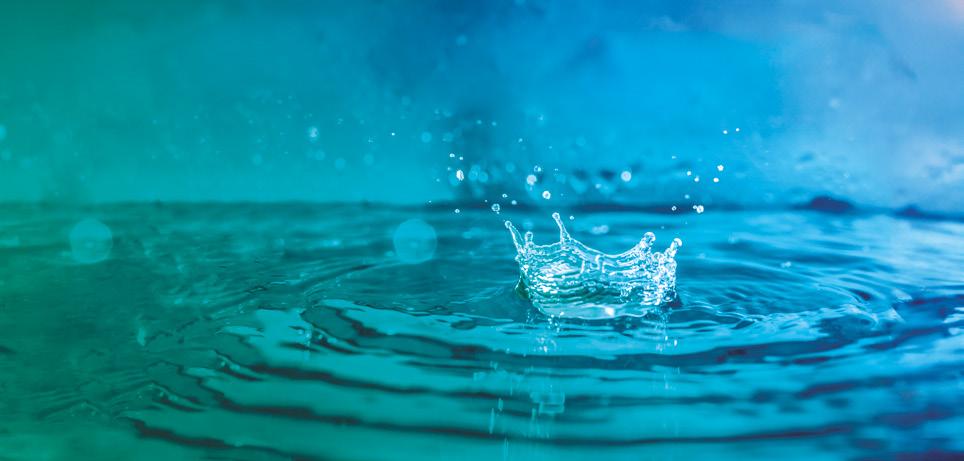

COVER STORY 13
OVERVIEW
XPRIZE Water Scarcity is a $119 million, 5-year global competition made possible by a $150 million investment from the Mohamed bin Zayed Water Initiative. This prize is designed to drive widespread access to clean water by creating reliable, sustainable, and affordable seawater desalination systems. Competing teams will develop new desalination technologies to unlock access to Earth’s ocean water year round, helping drive a world where clean water is equitably and sustainably abundant, and enabling people and the environment to prosper.
Barrier: 80% of the global population suffers from serious threats to water security, and by 2030, we will lack 40% of the water needed to meet global needs. Traditional desalination methods are unaffordable to low- to mediumincome countries, face increasing threats to operations from pollution and climate change, and drive negative environmental impacts, making them an unsustainable solution to mitigating water scarcity.
Breakthrough: Create reliable, sustainable, and affordable seawater desalination solutions that unlock access to Earth’s ocean water year round and increase clean water access globally.
OUR APPROACH (PRIZE DESIGN DETAILS)
This competition will address desalination challenges in three ways:
1. Exciting innovators across the globe to get involved and develop new technologies to address water scarcity.
2. Encouraging new desalination systems to be more reliable, affordable, and sustainable.
3. Propelling novel membrane and filtration materials to transform existing desalination technologies.
Teams can compete in a core competition track and/or a bonus track; Moonshot Awards are available for above-andbeyond sustainability innovations.
Track A: The New Desalination System
The competition centers around a core track to rethink the desalination system at a scale designed to provide safe, reliable, affordable, and sustainable water in support of fast-growing population centers. By focusing on system-level innovation and flexible criteria that open the innovation black box, the goal is to broaden the possible input from a wide variety of fields and expand the approaches to possible solutions.
14 COVER STORY
THE WINNING TEAM WILL reliably and most sustainably generate one million liters of potable water per day (1,000 m3/ day) from seawater at the lowest cost, below a target benchmark to ensure global accessibility, over the course of 1 year.
Additional Moonshot Awards are available in Track A, designed to further incentivize sustainability and scalability targets:
• Marine-friendly intake design
• Brine circularity , toward 100% resource recovery and valorization
• Energy efficiency , approaching the theoretical limit of 1.06 kWh/m3 at 50% water recovery
• Smallest land footprint , toward 100 m2/ MLD
Track B: Novel Membrane Materials This track is pursuing the search for the perfect membrane to cut the cost of water and increase reliability and sustainability, paving a future path for existing Seawater Reverse Osmosis (SWRO) desalination plants.
THE WINNING TEAM WILL most sustainably and cost-effectively treat seawater to potable water quality using reverse
osmosis membranes, demonstrating an operational lifetime of 10 years or more.
$119M PRIZE PURSE
• $70M Total Finalist Awards Track A - New Desalination System. 1st Place - $40M.
• $20M In Moonshot Awards to any team who participates in the Finals round and scores the highest in the specific category of that Moonshot Award.
• $9.5M Total Finalist Awards Track B in - Novel Membrane Materials. 1st Place $8M.
• $19.4M In Milestone Awards incrementally across the two competition tracks.
KEY DATES
Registration Deadline
• The New Desalination System: April 30, 2025
• Novel Membrane Materials: February 28, 2025
Qualifying Submission Deadline
• The New Desalination System: Q2 2025
• Novel Membrane Materials: Q1 2025
Qualified Team Testing:
• The New Desalination System: Q3 2025
Semifinals Testing:
• The New Desalination System: Q3 2026
Finals Testing
15 COVER STORY
• The New Desalination System: 20272028
• Novel Membrane Materials: Q3 2026
Award Ceremony and Winners Announced
• The New Desalination System: Q3 2028
• Novel Membrane Materials: Q2 2027
IMPACT
• XPRIZE Water Scarcity will create reliable, sustainable, and affordable seawater desalination systems that unlock Earth’s ocean water to drive equitable clean water access.
ʟ Effectively disrupting desalination solutions will drive the widespread and sustainable use of desalination technologies at a scale that will help alleviate global water scarcity.
ʟ The winning teams will create new desalination solutions that are affordable, reliable, sustainable, and resilient in a changing climate. Teams will also demonstrate enhanced environmental sustainability across energy and materials and minimizing harm to marine life.
ʟ XPRIZE Water Scarcity is made possible by the generous contributions of our title sponsor, the Mohamed bin Zayed Water Initiative (MBZWI). MBZWI has made a total investment of $150,000,000
($150M) in XPRIZE Water Scarcity; $31M will support prize operations, and $119M comprises the total prize purse available to competing teams.
SPONSORS
• XPRIZE Water Scarcity’s title sponsor is the Mohamed bin Zayed Water Initiative (MBZWI). The Mohamed bin Zayed Water Initiative is a nonprofit organization committed to driving coordinated action to address the growing threat of global water scarcity. Founded by His Highness Sheikh Mohamed bin Zayed Al Nahyan, President of the United Arab Emirates, the Mohamed bin Zayed Water Initiative seeks to harness the power of international cooperation, technological innovation, and strategic deployment, to overcome global water scarcity for the benefit of current and future generations.
• The Mohamed bin Zayed Water Initiative (MBZWI) has made a total investment of $150,000,000 ($150M) in XPRIZE Water Scarcity; $31M will support prize operations, and $119M comprises the total prize purse available to competing teams.
CALLS TO ACTION
• For teams: Compete to create novel desalination solutions that support more sustainable global water access. Register a team xprize.org/water.
COVER STORY 16
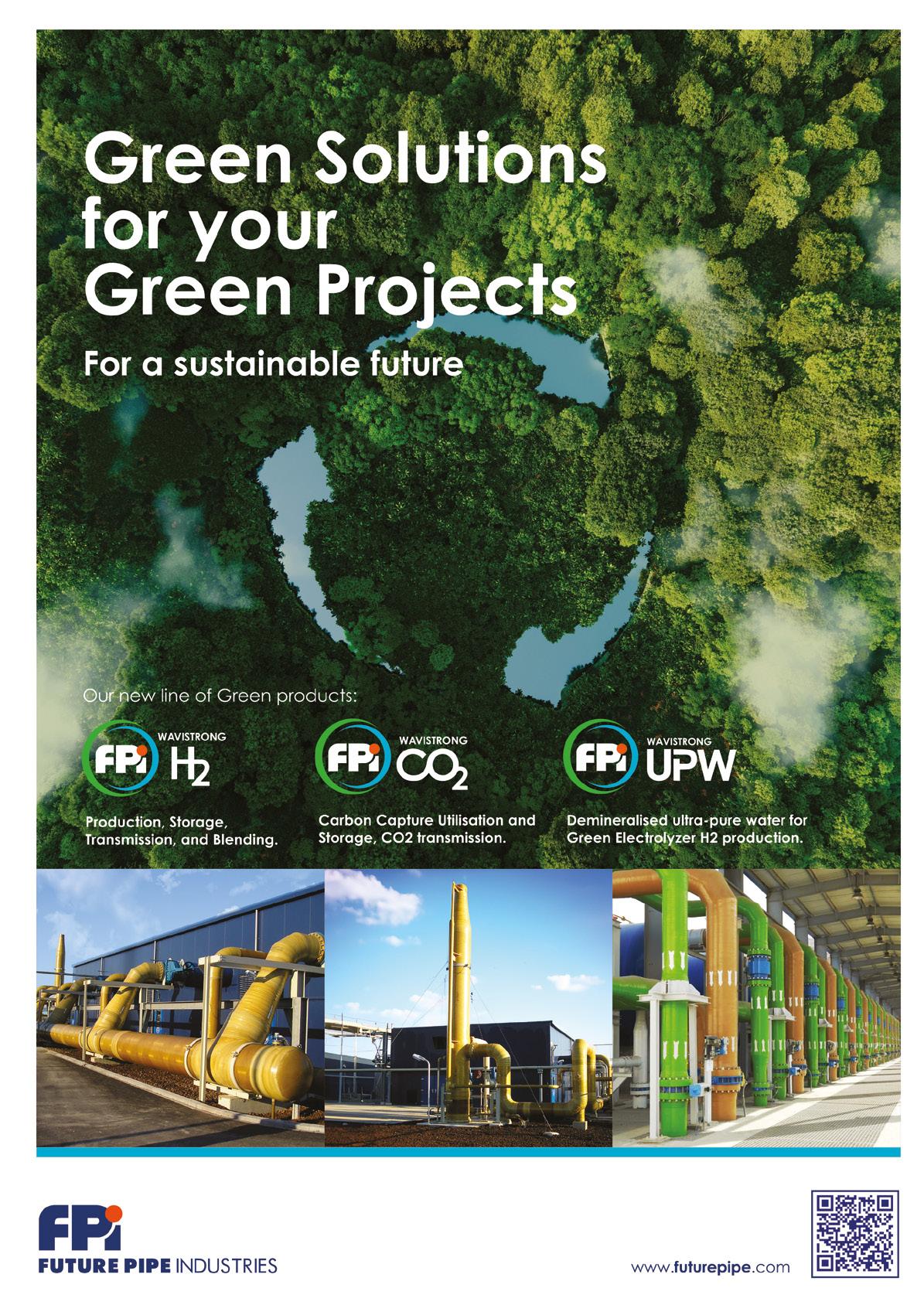
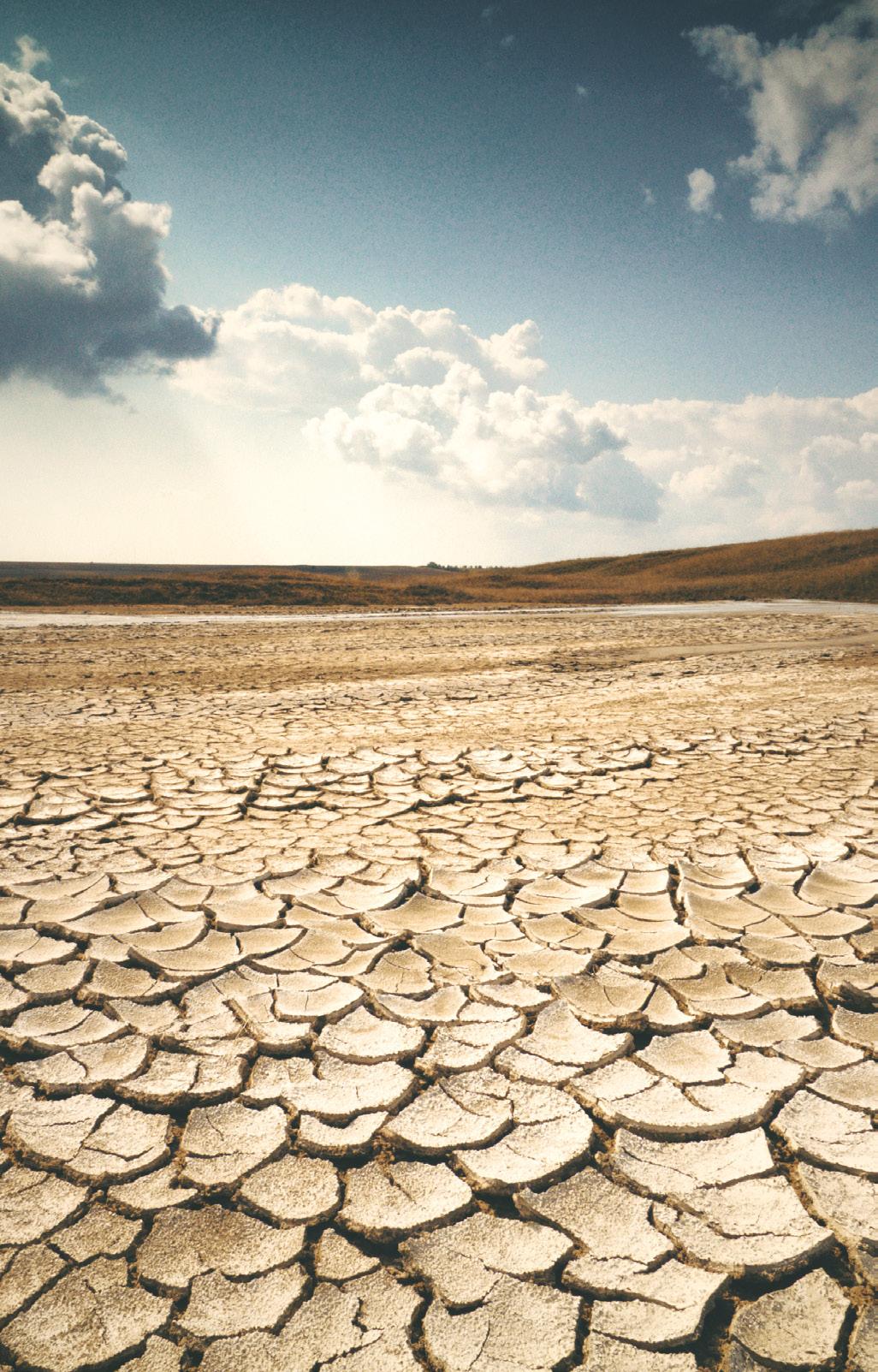
EXECUTIVE VIEWPOINT
18
FOCUS ON DECARBONIZATION
THE WORLD IS GETTING WARMER AND THIRSTIER
By Devesh Bharadwaj, Chief Executive Officer, Pani Energy
By the year 2050, humanity will need 20–30% more water. As we have already nearly exhausted our readily available freshwater resources, most of this will have to come from sources like sea- or brackish water desalination or the treatment and direct reuse of wastewater. These technologies have higher treatment intensity than traditional treatment technologies, meaning that it takes more energy, chemicals, and other consumables (like cartridge filters of RO membranes) for each cubic meter (m3) of water generated. This has a significant impact on costs - for plant owners and operators, and ultimately for customers. It also has a tremendous impact on our environment. Consuming energy, producing and importing chemicals, and disposing of waste by-products are all significant generators of greenhouse gas emissions. Water and wastewater treatment alone has been estimated to account for between 5 – 10% of greenhouse gas emissions around the world. This problem becomes even more wicked when one considers the impact of increased treatment on a warming plant, which in turn will cause the quantity and quality of our water supply to diminish and our need for higher levels of treatment to increase even more. However you choose to look at it, this
fundamentally is a cost problem. We need to drive down the costs associated with generating water for cities and industries, while reducing the cost to decarbonize the same process. To date, we’ve seen a strong focus on innovations in hardware, physics or chemistry. The software we used to make the most of these innovations has lagged sorely behind. While nascent in market presence, it will likely be the most dominant category of technology in the ‘water transition’ of the next decade. Reducing cost to treat and cost to decarbonize.
At Pani, our sole purpose is to accelerate decarbonization of the treatment sector. Our company goal is to reduce treatment by 510 MT per year by 2032. We are doing so through the development of new category of tool called Operations Intelligence (OI). OI leverages the power of machine learning and advanced analytics techniques to give treatment plant owners and operators better clarity and control over their treatment process. As we like to say about our flagship product, Pani Zed: Take your plant to peak performance by empowering your ops team with superpowers.
EXECUTIVE VIEWPOINT 19

Just where do the superpowers come in with operational intelligence? Let’s take for an example of a 100 MLD sea-water desalination plant with an average operating cost of $ USD 0.52 / m3 of water treated. That cost is a function of several inputs: the size of the plant, the nature of the equipment, the quality of the feed water, and the quality to which that water needs to be treated. But it’s also a function of how well that plant is run. Your average operation staff will make hundreds of critical decisions a year and the speed and accuracy of those decisions all have an impact on how less the plant performs. Some common ones we’ve seen include:
1. Overdosing antiscalant in pre-treatment train due to the inability to monitor and respond to fluctuation in feed quality in real time.
2. Cleaning membranes too later or too early due to the complexity of weighting up the economics of product yield, pumping costs, and clean-in-place chemical consumption.
Worse yet, missing an alarm or failing to troubleshoot a process upset quickly enough can lead to the loss of equipment or a non-compliance event which has even larger financial, environmental, or public safety impacts. OI can enable your team to address these issues quicker and more reliably, thanks to increased computed power coupled with codified operation knowledge that comes from working with and learning from hundreds of plants. To respond to the above problems, OI is capable of providing dynamic set point optimisations, forecasting optimal membrane cleaning times up to 30 days out, and providing automated fault detection and diagnosis so that your team can troubleshoot quickly and efficiently, reducing the risk or unexpected downtime or non-compliance.
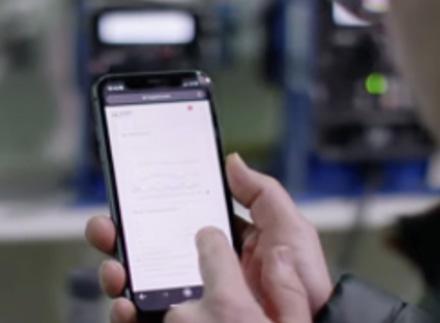
Both have an impact on your energy consumption or chemical costs.
Let’s take our 100 MLD desalination plant example again. Improving its operating costs by a mere 5% - from $ USD 0.52 / m3 to $ USD 0.49 / m3 - can equate to a savings of a million dollars per year. In our experience, we see many plants operating with inefficiencies closer to 5% - 20%. We call these unnecessary operating expenses
EXECUTIVE VIEWPOINT
Figure 1 - OI tools, like Pani Zed, are a digital layer that sit on top of incumbent software, like SCADA and instrumentation, from which it receives data to derive insights.
20
Figure 2 - An operator uses our OI tool, Pani Zed, to guide their decisions at the plant.
operating loses. They are the unnecessary financial and environmental costs that come with human errors in operation. A back of the envelop calculation – based on a cumulative global desalination capacity of 115 million m3/ day (2020 numbers)1, the above quoted OPEX of $ USD 0.52 / m3, an average plant energy
intensity of 4.0 kWh/m3, and an average global electricity generation intensity of 468 g CO2 / Kwh - demonstrates the magnitude of the opportunity. $ USD 100 - 300 million and 0.4 –1.5 MT of CO2 emissions per year can be saved through the implementation of OI across the desalination sector alone.
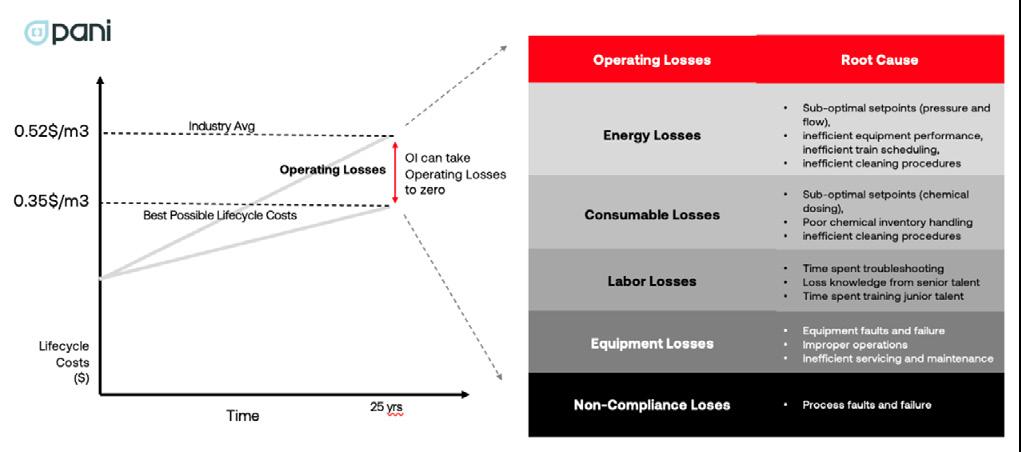
Amidst all the hype around digital transformation in our sector, it’s the decarbonisation potential that tools like OI provide that I am most excited about.
Of course, the above numbers are just a small fraction of the footprint of our industry alone. OI may provide one avenue for more affordable water production through reducing cost items like energy, chemicals, consumables and equipment losses, which in turn equates more sustainable water production as all of the above items have carbon footprints. But these tools must be rolled out alongside industry leading technology (both process equipment and sensors) and proficient and curious operations
teams willing to embrace new ways of working if we want to tackle the twinned challenges of dwindling water resources and a warming world. To do this, I invite any plant owners, operators, and technology solution providers looking to tackle the environmental and financial impact of our growing water demand to join me on this mission.
Reference on Global Desalination capacity:
1.Eke, J., Yusuf, A., Giwa, A., & Sodiq, A. (2020). The global status of desalination: An assessment of current desalination technologies, plants and capacity. Desalination, 495, 114633. https://doi. org/10.1016/j.desal.2020.114633
EXECUTIVE VIEWPOINT
21
Figure 3 -Operating loses are avoidable operating expenses that come with inefficiencies at the plant level. There are many sources of operating loses (seen on the right.) If adopted and implemented correctly, we believe OI can bring operating loses to zero.
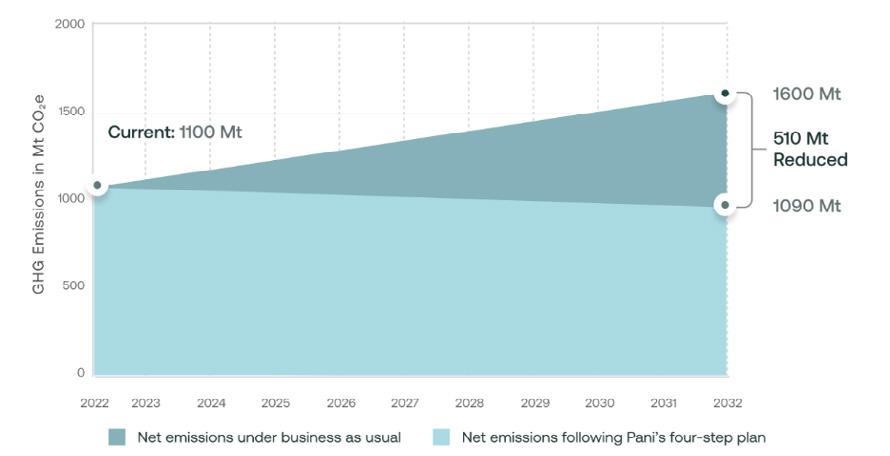
The 5 – 10 % figure is based on a ground-up modeling exercise Pani Energy completed in November 2022 when they launched their whitepaper decarbonizing the water sector. This work has since been recognized as some

About the Author
Devesh Bharadwaj is the CEO and Founder of Pani, an award winning operational artificial intelligence company that offers digital products for optimising water and wastewater treatment processes. Devesh grew up in India before moving to Canada for University, where his research led
of the most detailed work on the topic by several organizations, including the National Association for Water Innovation. Here is a link to that paper.
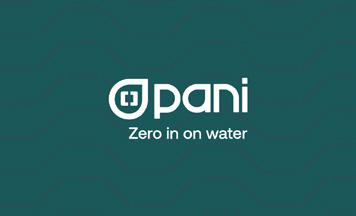
to the founding of Pani. He is passionate about sustainability and committed to tackling the twin crises of access to clean water and climate change. In 2022, Devesh was named to the Forbes 30 under 30 in the category of Social Impact.
Reference on Global Desalination capacity: 1.Eke, J., Yusuf, A., Giwa, A., & Sodiq, A. (2020). The global status of desalination: An assessment of current desalination technologies, plants and capacity. Desalination, 495, 114633. https://doi.org/10.1016/j.desal.2020.114633
EXECUTIVE VIEWPOINT
Figure 4 - Water and wastewater treatment are currently responsible for 5 - 10% of global GHG emissions. This will only increase as our demand goes up. At Pani, our goal is to use tools like OI to reduce the sector's greenhouse gas emissions by 510 MT per year by 2032.
22
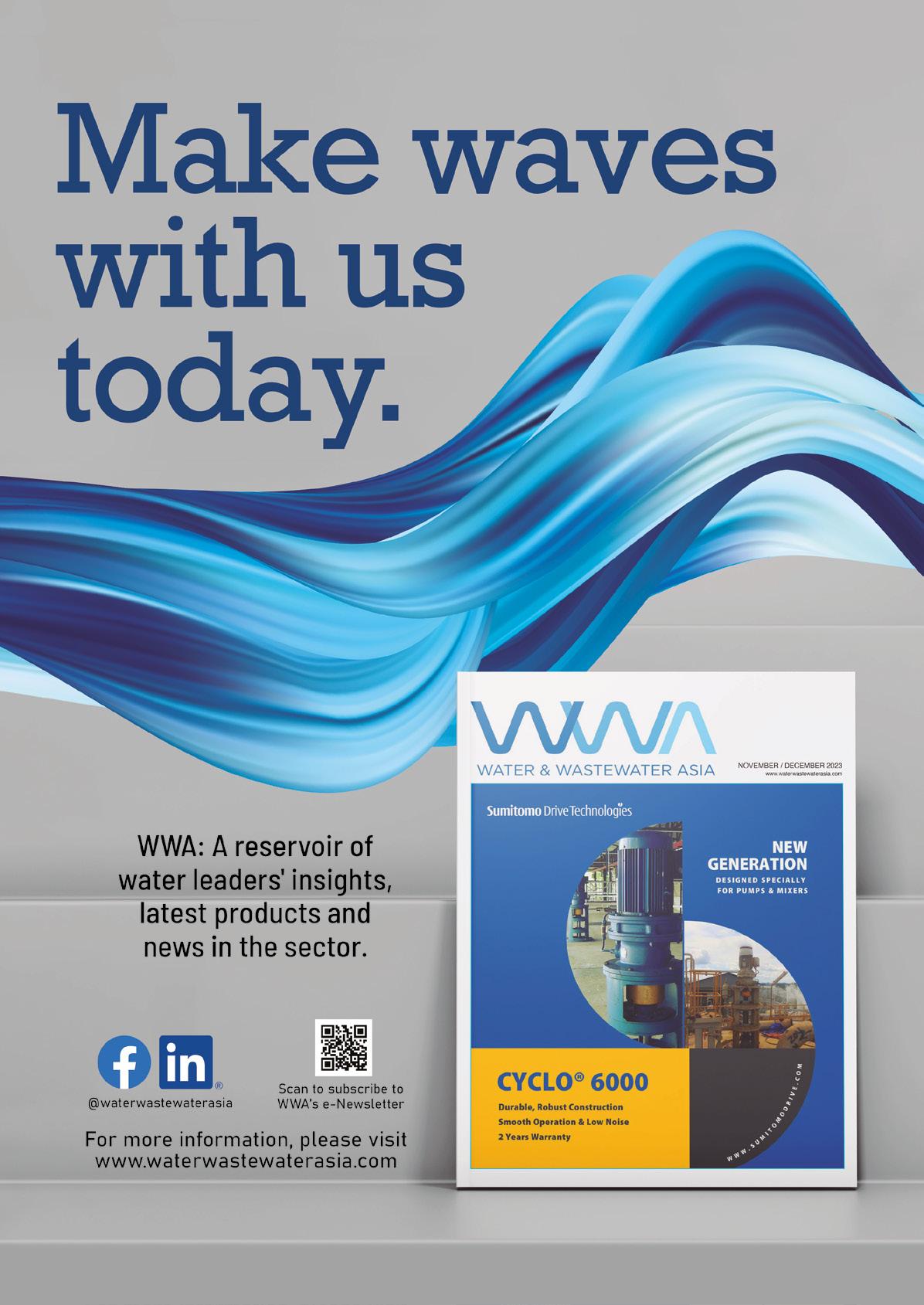
23
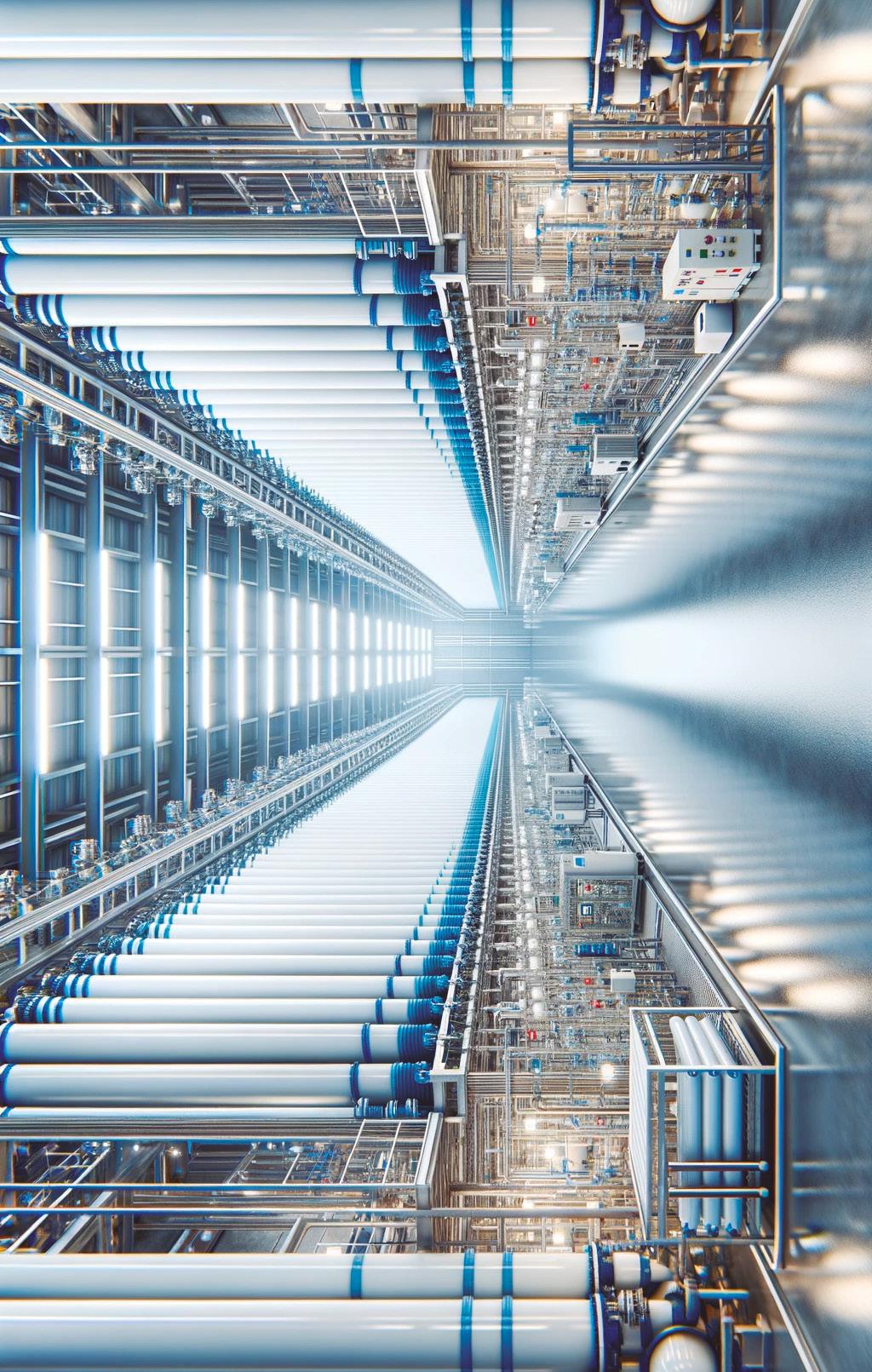
EXECUTIVE VIEWPOINT
24
FOCUS ON DECARBONIZATION
THE UNEXPECTED SOLUTION TO DESALINATION CHALLENGES: DIRECT AIR CAPTURE
By Dr. Ethan Cohen-Cole, CEO and Co-founder, Capture6
The 2023 IDA Seville Summit explored the theme of "Water and Climate Change," promoting unconventional water resource solutions and unlocking the potential of brine to enhance long-term water security and adaptation to climate change. This set the stage for exploring the water climate nexus. More recently, during a panel discussion held at COP28 under the theme "Mitigating Water Scarcity via Desalination and Reuse," the panel discussed strategies related to water management and the challenges posed by water scarcity and climate change. This session served as a precursor to the upcoming International Desalination and Reuse (IDRA) World Congress, highlighting Abu Dhabi's dedication to advancing outstanding water solutions.
The relationships between water, energy, and climate are critical. According to Emerald VC, the global municipal water and wastewater sector emits over 800 million metric tons of carbon dioxide equivalent (CO2e) annually, surpassing even the global shipping and aviation sectors. A substantial contributor, it accounts for 1-2% of global greenhouse gas emissions.
The climate and environmental impact of the desalination industry extends beyond carbon emissions, particularly in the disposal of brine. Existing brine disposal methods typically involve discharging brine to sewers, surface water, injection wells, evaporation ponds or the ocean, all of which come with associated expenses and environmental consequences. Climate change exacerbates water insecurity and accessing non-traditional water sources in turn is carbon intensive.
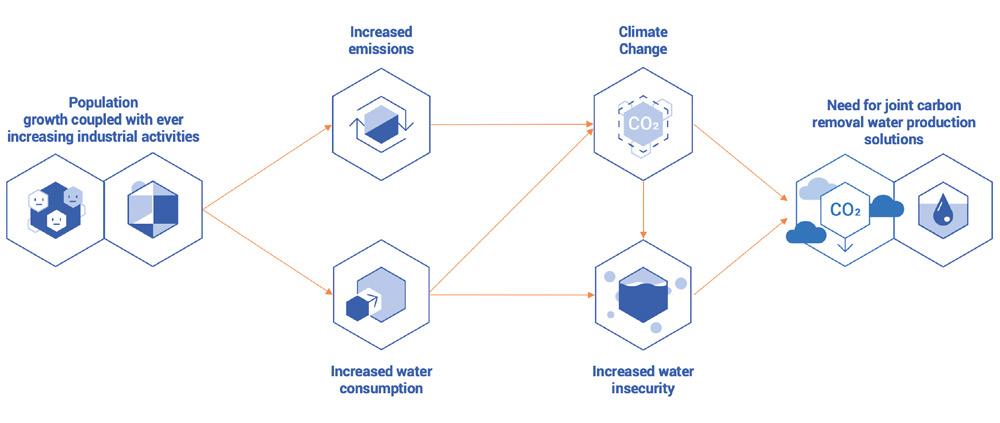
EXECUTIVE VIEWPOINT 25
There has never been a more urgent time to find solutions that address climate change and water insecurity in a complementary way. The global desalination capacity reached 95Mm31 per day in 2020, equaling almost half the average flow over Niagara Falls. The sheer volume of brine discharge of 142Mm3 daily2 is enough in a year to cover the State of Florida under a foot of brine. While the desalination industry is looking to address water scarcity around the world, the economic feasibility of enhancing water yields from existing assets can be challenging.
Unlikely Approaches
Direct air capture (DAC) technology can reduce these climate and environmental and operational challenges by integrating with new and existing desalination facilities. Central to this solution is the concept of a circular economy, utilizing brine to create a carbon removal solvent and thus transforming it from waste product to a valuable resource and revenue stream.
This process consumes almost all salt from concentrated brines that remain after desalination processes, limiting environmental harms and increasing the original process efficiency. At multiple stages in this carbon capture process, freshwater can be recovered and further treated to be used for drinking and industrial purposes. Best yet, some of the outputs of the process are carbon-negative chemicals used widely in the desalination industry.
By partnering with desalination facilities and repurposing existing industrial-scale technologies, up to 80% additional freshwater can be recovered out of otherwise wasted brine effluents while capturing CO2 and eliminating waste brine in the process. The triple benefits of carbon removal, freshwater recovery, and brine elimination offer increased efficiencies that drive down costs while mitigating environmental harms of the desalination industry.
Capture6: Project Monarch in Southern California
Capture6 is partnering with Palmdale Water District (PWD) and Stantec to build a joint pilot facility to produce freshwater resources and simultaneously increase carbon removal in California. The facility, named Pure Water Antelope Valley Demonstration Facility which includes Capture6’s Project Monarch, will be the first fully integrated water treatment and carbon dioxide (CO2) removal facility.
PWD is building a demonstration facility to validate its advanced water treatment system. Capture6 will co-locate the pilot carbon removal facility, Project Monarch, within the PWD facility to showcase the ability to boost water recovery and remove atmospheric CO2 in an integrated process. Project Monarch is a two-phase project with the plan to develop a large-scale commercial facility that will deliver additional co-benefits to surrounding communities, such as green jobs, in the future.
1) https://www.sciencedirect.com/science/article/abs/pii/S0048969718349167#
2) https://www.sciencedirect.com/science/article/abs/pii/S0048969718349167#
EXECUTIVE VIEWPOINT
26
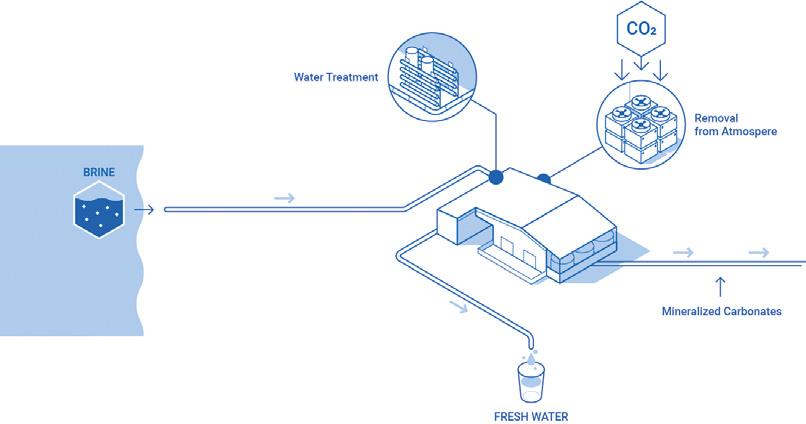
Addressing the symptoms and causes of climate change
Integrating DAC technology into desalination processes allows for an energy-efficient and cost-effective way of removing CO2 from the atmosphere and offers a promising path to gigaton carbon removal on a global scale. Moreover, this approach aids the desalination industry in fulfilling its mission of addressing water scarcity. By removing atmospheric CO2, restoring freshwater, and generating green chemicals that can further reduce the industry's carbon footprint, it presents a multifaceted

About the Author
strategy to combat climate change and build climate resilience.
The desalination industry is presented with a historical opportunity to further contribute to global carbon neutrality efforts through the implementation of carbon removal technology into its existing processes. By recognizing the water climate nexus and adopting approaches that account for multiple objectives, the desalination industry can create a future where freshwater production aligns with sustainable practices, contributing to a healthier planet for generations to come.
As CEO of Capture6, Dr. Ethan Cohen-Cole has built an aggressively scalable framework for direct air capture technology deployment to avoid the worst scenarios of global warming, creating freshwater in the process. Dr. CohenCole is the lead inventor on Capture6’s original patent, and has led key negotiations with OEMs, high profile investors and policy stakeholders in the CDR space. Dr. Cohen-Cole has more than 25 years of experience as a professor,
bank supervisor, public policy professional, business operator and social entrepreneur. Dr. Cohen-Cole has also been an invited visitor or speaker at more than 75 professional and academic seminars and training sessions. His financial sector clients have included the largest multinational banks in the US and Europe. Broadly experienced, Dr. Cohen-Cole has worked on client engagements in more than 25 countries on six continents.
EXECUTIVE VIEWPOINT
27

FOCUS ON BE WATER POSITIVE
VIEWPOINT
EXECUTIVE
28
ADVANCING WATER REUSE PLANT EFFICIENCY AND SUSTAINABILITY GOALS THROUGH THE SUCCESSFUL DEMONSTRATION OF ARTIFICIAL INTELLIGENCE
By Dr. Mike Dixon, Mr. Prakash Govindan and Mr. Hiep Le, Gradiant
Integrating artificial intelligence (AI) into desalination and water reuse plants has become imperative to elevate operational efficacy and reduce energy consumption. Over the last several years, pressure to bid lower and lower values on large reverse osmosis (RO) plants has increased substantially, with some large RO systems at less than USD 0.30/m3. In response to escalating pressures to curtail costs in RO plants, as well as meet carbon footprint and sustainability initiatives provided by governments, the strategic application of machine learning (ML), a subset of AI, has emerged as an indispensable tool for plant management.
One such example of this endeavor has been Gradiant’s digital AI team, Turing, partnering with PUB, Singapore’s National Water Agency. Leveraging our SmartOps Digital AI platform, we’ve strategically identified the optimal schedule for cleaning the systems RO membranes at the Bedok NEWater Factory, one of the first water reuse plants in Singapore. SmartOps Digital is an integrated platform that utilizes machine learning AI algorithms for the optimization and prediction of plant operations.
It uses historical and real-time process data to deliver immediate productivity improvements and cost savings, as well as reduce the carbon and water footprints in systems where it’s installed.
Rigorous testing at Bedok demonstrated an exceptional accuracy rate of 98.1% in predicting cleaning recommendations when the plant is operating under normal conditions.
Traditionally, energy optimization has been a focal point in seawater RO plants to minimize costs. However, water reuse plants, characterized by lower consumption, necessitate nuanced optimization strategies. The Bedok NEWater Factory, operational for over 20 years, sought to obviate membrane replacements and associated costs by strategically determining the optimal time to clean the RO membranes.
EXECUTIVE VIEWPOINT
29
The project, with a primary focus on mitigating irreversible fouling induced by biofouling, engaged SmartOps AI algorithms by our team, in collaboration with PUB Singapore. The algorithm meticulously analyzed daily data, specifically honing in on Normalized Differential Pressure (DP), to discern the onset of biofouling. The algorithm categorized risk conditions – Yellow, Orange, and Red – signifying the opportune
time for cleaning. Rigorous testing at Bedok demonstrated an exceptional accuracy rate of 98.1% in predicting cleaning recommendations when the plant is operating under normal conditions.
Figure 1 shows real data from the Bedok plant, indicating a Yellow, Orange, and Red risk category.

Through predictive analytics, SmartOps optimizes the cleaning schedule as illustrated in the graph. This can potentially decrease the necessity for replacements and contribute to a diminished carbon footprint associated with the manufacturing and transportation of new membranes.
The Bedok NEWater Factory, commissioned in 2002, boasts a daily production capacity of 82,000m3 of recycled water earmarked primarily for industrial applications in Singapore. The trial unfolded in three precise phases: historic data analysis, live recommendations incorporating inputs
from the Bedok operations team, and live recommendations devoid of inputs from the Bedok operations team on operational events.
The results were as follows, in Phase 1, the historical data analysis underscored the AI algorithm’s prowess in detecting inflections in Normalized DP, a pivotal precursor for predicting biofouling. The analysis revealed a remarkable accuracy rate of 98.1% in predicting the imperative need for cleaning to avert irreversible fouling. Noteworthy, the five instances of missed inflections were attributed to sporadic data inconsistencies.
EXECUTIVE VIEWPOINT
30
Figure 1. Real data from the Bedok plant, showing cleaning risk categories.
Phase 2 involved the delivery of live recommendations to Bedok operators, who keenly observed trends without immediate implementation. The analysis illuminated the discernment that specific operational events, such as permeate flushes and mode switches, could attenuate the necessity for cleaning, thereby informing subsequent refinements to the algorithms.
Phase 3 constituted live recommendations without inputs from Bedok on operational events, constituting a blind test to independently validate the AI algorithm.
In conclusion, the demonstration of AI at the Bedok NEWater Factory stands as a testament to the transformative potential of AI in optimizing water reuse plant operations and making meaningful contributions to carbon capture initiatives. By accurately predicting the opportune time to clean RO membranes, AI not only demonstrates its efficacy in operational cost reduction but also holds promise for substantial extension of membrane lifespans and broader environmental goals. As this project evolves, the industry can anticipate further strides in water treatment plant efficiency and sustainability practices through the discerning application of state-of-the-art AI technologies.
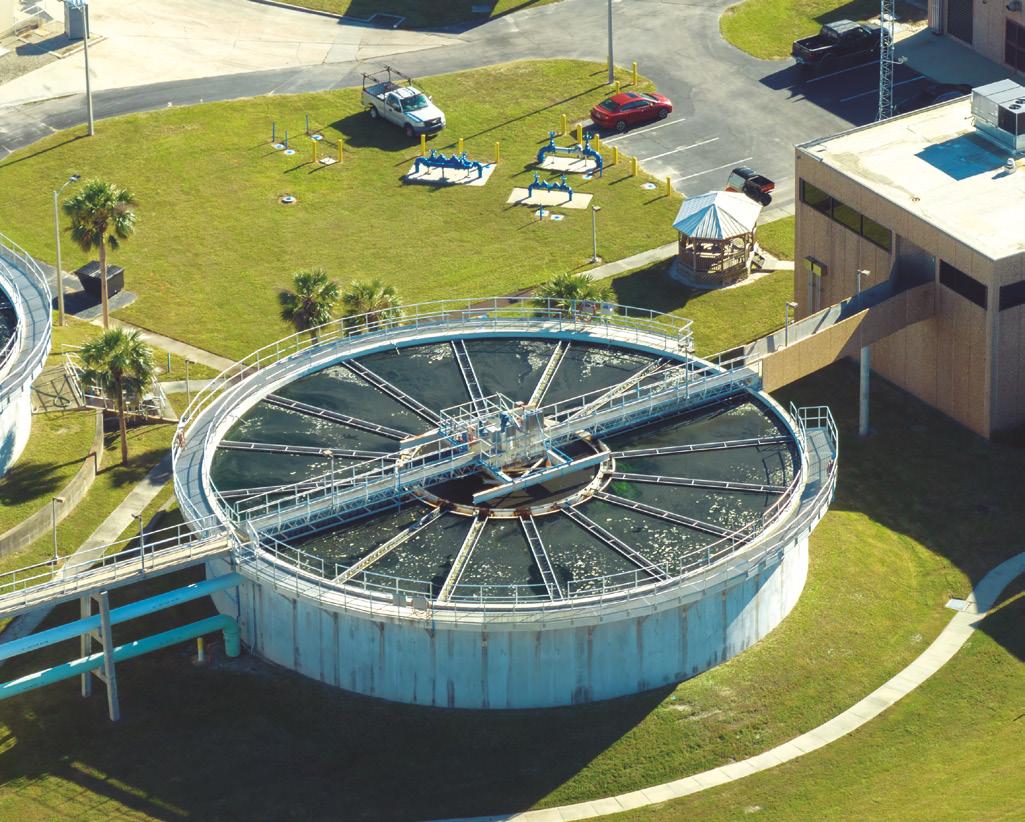
EXECUTIVE VIEWPOINT
31

EXECUTIVE VIEWPOINT FOCUS ON ENVIRONMENTAL STEWARDSHIP 32
UNVEILING THE FINANCIAL DYNAMICS: AN IN-DEPTH ENGINEERING AND ECONOMIC ANALYSIS OF WATER REUSE AND BRINE MINING
By Mr. Christos Charisiadis, Brine Innovation Manager, WORLEY Ltd
In the face of impending global water scarcity, a thorough exploration of the engineering and economic intricacies of water reuse and brine mining becomes imperative. This analysis aims to unravel not just the financial landscape but also the engineering aspects of these practices, shedding light on their potential to bridge the water scarcity gap and emerge as high-yield investment opportunities.
Strengths
1. Unlocking Financial Value:
Beyond environmental benefits, water reuse and brine mining stand out as lucrative ventures. Projections indicate a potential contribution of up to 10% of the United States' water demand by 2030, creating a market projected to reach $127 billion by 2025.
2. Cost Savings and Revenue Generation:
The financial attractiveness of water reuse lies in its capacity to reduce dependence on freshwater sources. Reclaiming and treating industrial brines, potentially redirecting 130 billion gallons per day, translates into substantial cost savings and revenue generation. From an engineering standpoint, optimized treatment processes can enhance these gains.
3. Green Returns from Decarbonization: Decarbonization through water reuse projects can achieve a noteworthy reduction of up to 70% in greenhouse gas emissions compared to traditional desalination. This translates into both environmental stewardship and potential financial gains for investors, aligning with sustainability and economic objectives.
4. Capitalizing on a Booming Market:
Investors eyeing impactful ventures should consider the projected $127 billion global water reuse market by 2025. Beyond its size, the market represents an opportunity to invest in engineering solutions that align with sustainability goals while ensuring substantial economic returns.
Weaknesses
1. Overcoming Initial Capital Costs:
The engineering challenge of building water reuse and brine mining facilities is underscored by significant upfront capital costs. However, viewing these costs as strategic investments in robust engineering infrastructure provides the foundation for long-term financial returns.
FOCUS ON INNOVATION 33
2. Managing Operational Costs:
Beyond the initial investment, engineering considerations become paramount in managing ongoing operational costs. Specialized equipment, maintenance, and chemical treatment demand a keen engineering focus for efficient processes, ensuring sustained profitability over the project's lifespan.
innovations in water reuse and brine mining can not only deliver immediate returns but also ensure the longevity of projects in line with growing water needs.
SWOT
3. Navigating Public Perception: Engineering solutions must address public concerns about safety and environmental impact. This is not only a matter of securing project approvals but also engineering effective communication strategies to maintain positive public relations and investor confidence.
Opportunities
1. Profiting from Growing Water Demand: Investors can leverage engineering solutions to meet the escalating global water demand. Positioned strategically, engineering
2. Capitalizing on Technological Advancements: Technological innovations in membrane technology, water treatment, and resource recovery are transforming the engineering landscape. Investors must align with cutting-edge engineering solutions that enhance efficiency and reduce costs, directly contributing to the overall financial attractiveness of projects.
3. Maximizing Governmental Support: Governments globally are recognizing the engineering significance of water reuse and brine mining. Investors can capitalize on growing governmental support, benefiting from subsidies, tax breaks, and incentives that enhance the financial viability of projects, aligning with engineering excellence and sustainability priorities.
FOCUS ON INNOVATION
1. Unlocking Financial Value 2. Cost Savings and Revenue Generation 3. Green Returns from Decarbonization 4. Capitalizing on a Booming Market
Overcoming Initial Capital Costs 2. Managing Operational Costs 3. Navigating Public Perception 1. Profiting from Growing Water Demand 2. Capitalizing on Technological Advancements 3. Maximizing Governmental Support
Mitigating Economic Downturn Risks 2. Adapting to Changing 3. Regulatory Landscape 4. Navigating Competitive Markets Helpful Internal Origin External Origin
34
1.
1.
Harmful
Threats
1. Mitigating Economic Downturn Risks:
Engineering projects, especially during economic downturns, require resilient strategies. The critical nature of water resources positions water reuse and brine mining projects as essential infrastructure, contributing to economic resilience through robust engineering solutions.
2. Adapting to Changing Regulatory Landscape:
The engineering challenge extends to navigating evolving environmental regulations. Stricter regulations may impact the engineering cost structure of water reuse and brine mining projects. Staying informed and adapting engineering practices is crucial for maintaining financial competitiveness.
3. Navigating Competitive Markets:
Engineering investors should be vigilant in competitive markets where alternative
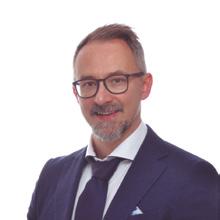
About the Author
Christos Charisiadis serves as the Brine Innovation Manager at WORLEY Ltd., focusing on Zero Liquid Discharge (ZLD) and Brine Mining. In his role, he conducts technical research, develops sustainable solutions, and collaborates with industry partners to support a vision of a greener, more sustainable future.
water sources vie for attention. Staying at the forefront of engineering advancements and market trends ensures investors contribute to a sustainable water future while maintaining a competitive edge.
This engineering and economic analysis underscores the immediate financial returns for end clients and the compelling investment opportunities in water reuse and brine mining. Beyond financial gains, these practices offer a pathway to sustainable water management, combining engineering excellence with economic prosperity. Technological advancements and growing governmental support further cement water reuse and brine mining as promising investments for those seeking both engineering innovation and a positive environmental impact. The marriage of engineering acumen and financial foresight navigates us toward a water-secure future.
Disclaimer: The author opinions don't reflect those of his employer.
With a passion for environmental conservation, he navigates international collaborations, manages projects, and explores wastewater treatment technologies. Christos is dedicated to advancing environmental innovation and promoting sustainable practices.
FOCUS ON INNOVATION
35
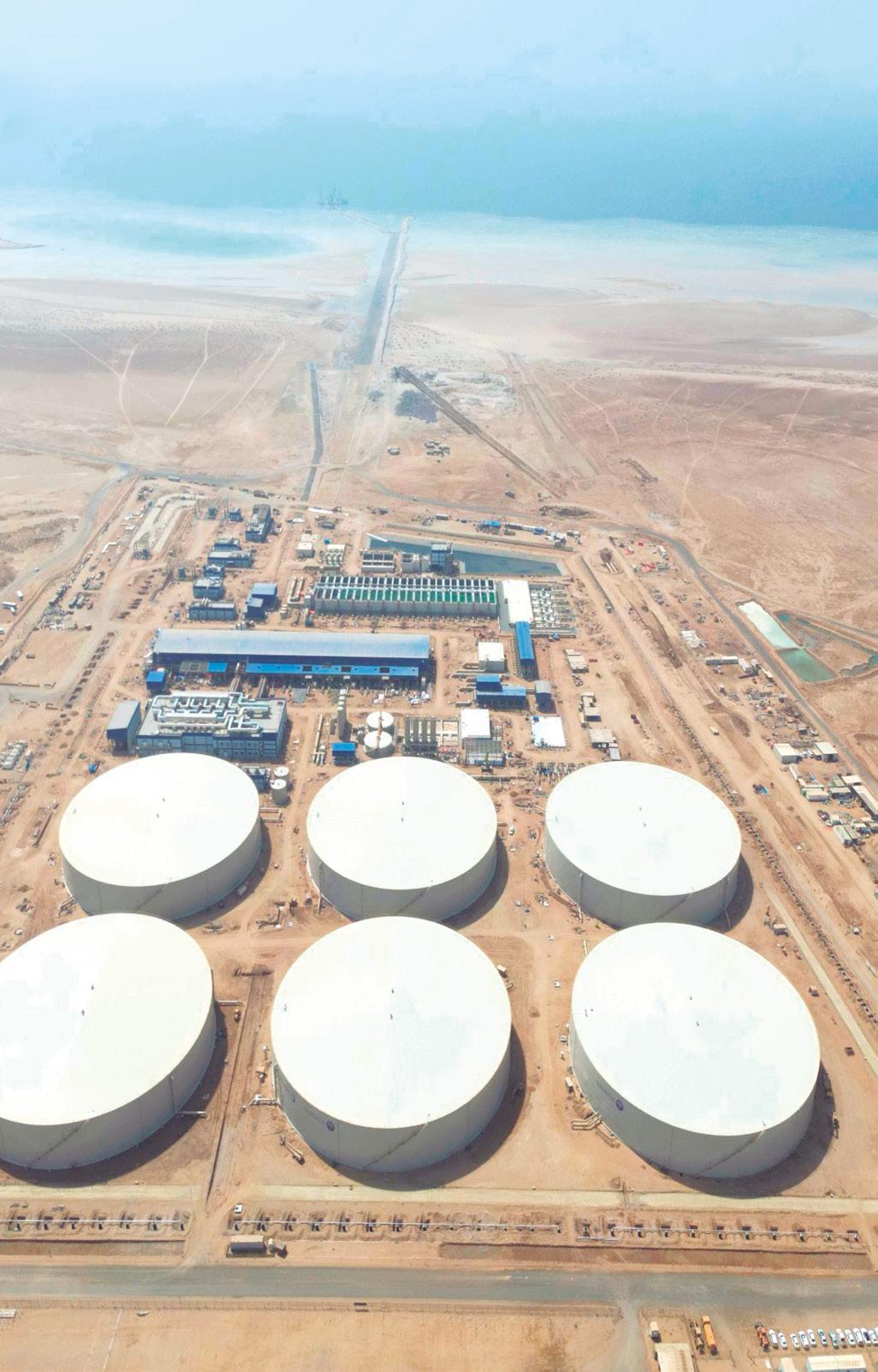
FOCUS ON INNOVATION
36
ENGIE'S DESALINATION CENTER OF EXCELLENCE: PIONEERING SUSTAINABLE WATER SOLUTIONS
By Dr. Latifa Lahsine, Head of Desalination Centre of Excellence, ENGIE
In a monumental step towards combating the global challenge of water scarcity, ENGIE, a leader in low-carbon energy and services, proudly unveiled its Desalination Center of Excellence on December 10, 2023, at COP28 in the UAE. This strategic initiative aligns seamlessly with ENGIE's commitment to achieving Net Zero by 2045 and stands as a crucial milestone in the quest for sustainable water solutions in our rapidly evolving world.
The launch, occurring on COP’s thematic day focused on 'Food, Agriculture, and Water,' drew a distinguished audience from around the globe, including water and desalination experts, top executives, and government dignitaries. The Center’s mission is rooted in leveraging more than three decades of desalination expertise to address water scarcity through innovative, clean, and safe water solutions.
As the second-largest producer of desalinated water in the GCC, ENGIE produces an impressive 5.8 million cubic meters of desalinated water daily. The Desalination Center of Excellence is a testament to ENGIE's commitment to securing access to sustainable water for people, ensuring that future generations can flourish and live in Harmony .
The ultimate goal is to achieve a record-setting 2000 MIGD by 2030, with 1300 MIGD already installed and an additional 340MIGD under construction. By 2025, ENGIE aims to have 1650 MIGD installed, reinforcing its role as a major player in sustainable desalination.
The Desalination Center of Excellence is poised to become a global exemplar in desalination, driving technological advancement and sustainable practices through collaboration, research, and education. ENGIE's approach centers on collaboration and resilience, envisioning a future where communities and industries thrive on sustainable water resources.
The key focus areas include:
1. Actively engaging with governments to support their planning and implementation of new desalination plants. This collaborative approach ensures a harmonious integration of sustainable water solutions into broader national strategies.
2. Working closely with regional R&D initiatives , ENGIE aims to deepen the understanding of water needs and related challenges and optimize desalination treatment
FOCUS ON INNOVATION 37
processes. This research-driven approach is fundamental to enhancing the efficiency and effectiveness of desalination technologies.
3. The Center is committed to optimizing the energy efficiency of desalination assets. By combining desalination with greener energy sources and advanced and more efficient Reverse Osmosis (RO) technology, ENGIE has already demonstrated a path to more energy-efficient and low-carbon water production.
4. ENGIE is actively improving the technologies used in desalination assets. This commitment to innovation ensures that the Center remains at the forefront of technological advancements in the field.
5. Recognizing the importance of fostering innovation , ENGIE is collaborating with start-ups. These partnerships aim to catalyze the development and adoption of cutting-edge technologies that contribute to sustainable and efficient desalination practices.
Water scarcity poses a growing threat worldwide, with billions facing water access challenges and regions grappling with the impacts of climate change. In the Middle East, desalination has emerged as a critical solution to water needs. ENGIE's Desalination Center of Excellence embodies the spirit of innovation and collaboration, striving for solutions that ensure water security while minimizing environmental impacts.
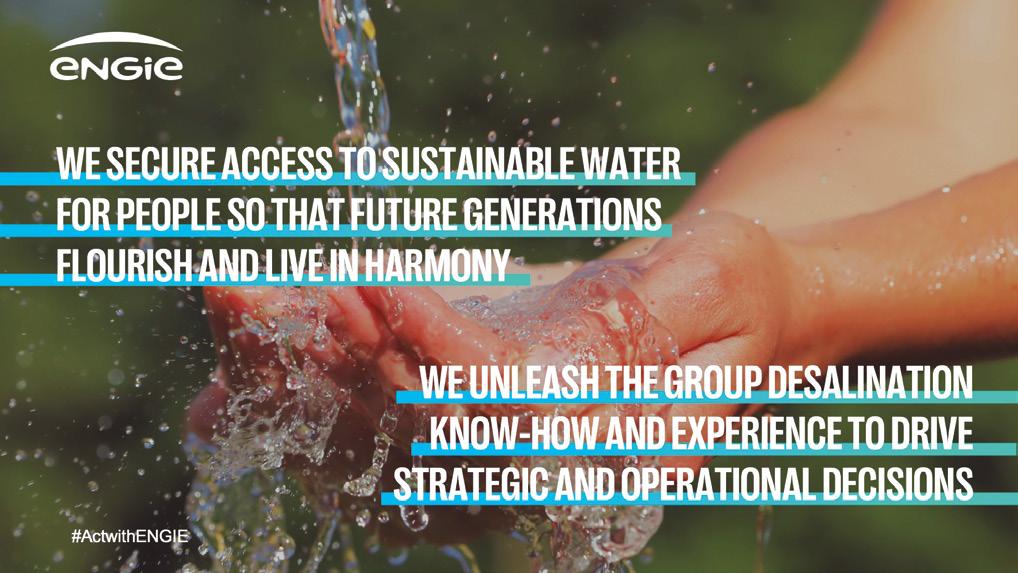
FOCUS ON INNOVATION 38
ENGIE's Desalination Center of Excellence represents more than just a physical hub for technical expertise; it symbolizes the unleashing of the group's desalination know-how and experience to drive strategic and operational decisions. With a legacy of over 30 years in desalination, ENGIE brings a wealth of expertise to the forefront, contributing to the Center's mission of addressing water scarcity through innovative, clean, and safe water solutions.
ENGIE's commitment goes beyond being a significant desalinated water producer in the GCC; it extends to making a meaningful impact on the global water landscape. The Center's focus on optimizing energy efficiency, improving technologies, and supporting startups underscores ENGIE's dedication to driving positive change in the desalination sector.

About the Author
As the world grapples with the challenges of water scarcity and climate change, ENGIE's leadership in desalination sets a precedent for responsible corporate stewardship. The Center's initiatives, driven by collaboration, research, and innovation, pave the way for a water-secure and climate-resilient future.
In the spirit of "securing access to sustainable water for people so that future generations flourish and live in harmony," ENGIE's Desalination Center of Excellence calls on governments, industry partners, and stakeholders worldwide to join hands in addressing the global water crisis. Together, we can create a world where water is not just a resource but a sustainable legacy for generations to come.
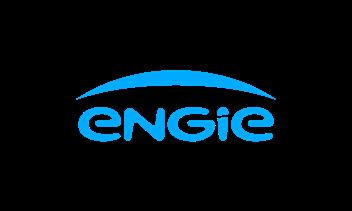
governance, and process. Ability to work under pressure and to challenging deadlines. Direct negotiations with clients and partner up to contract signature.
FOCUS ON INNOVATION
Latifa Lahsine Assemble a bid team with the relevant service / product / business knowledge required to prepare a winning bid, whilst taking ownership of the end-to-end bid process. Introduction and implementation of all necessary bid procedures,
39
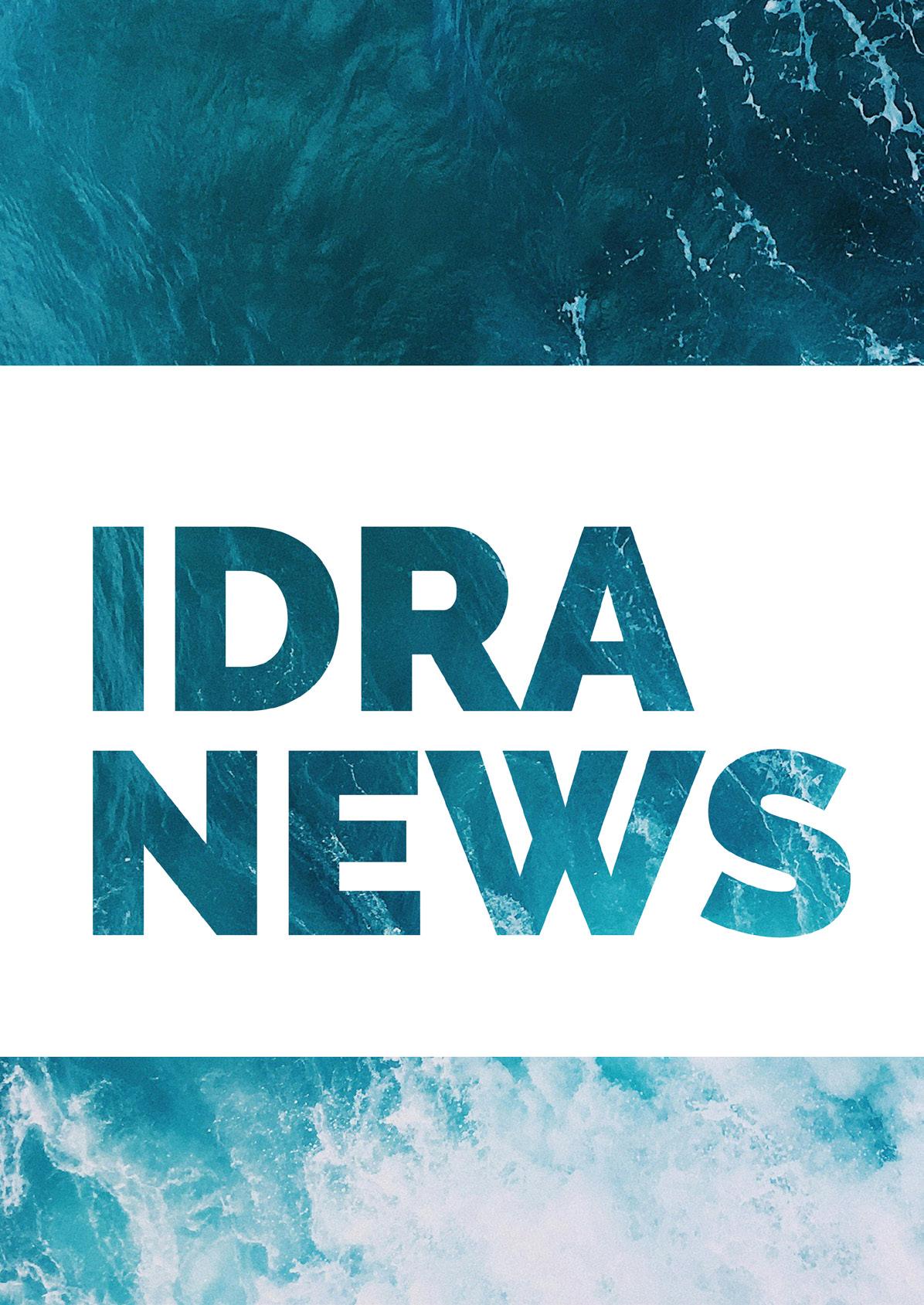
40

41

WHAT THE DESALINATION INDUSTRY THINKS:
EMERGING TECHNOLOGIES – A
BLUETECH RESEARCH/IDRA SURVEY
42 BLUETECH AND IDRA SURVEY
Introduction
Based on a comprehensive online survey conducted by BlueTech Research and the International Desalination Association, this article collates the collective insights and perspectives of 45 professionals from across the desalination industry, including consultants, academic researchers, policymakers, regulators, and both end-users and suppliers of desalination technologies. It analyzes the responses to gauge the industry's current stance on emerging desalination technologies, market potential, adoption challenges, and the anticipated research needs to propel the sector forward.
Growth potential of emerging desalination technologies
Question 2 of the survey asked respondents to rate a collection of twelve desalination technologies in terms of five categories of commercial progress: High growth potential, Moving right along, Niche potential, Stalled, and Heading to the graveyard/ “Zombie” status.
Figure 1 below shows the collated answers, in order of perceived growth potential.
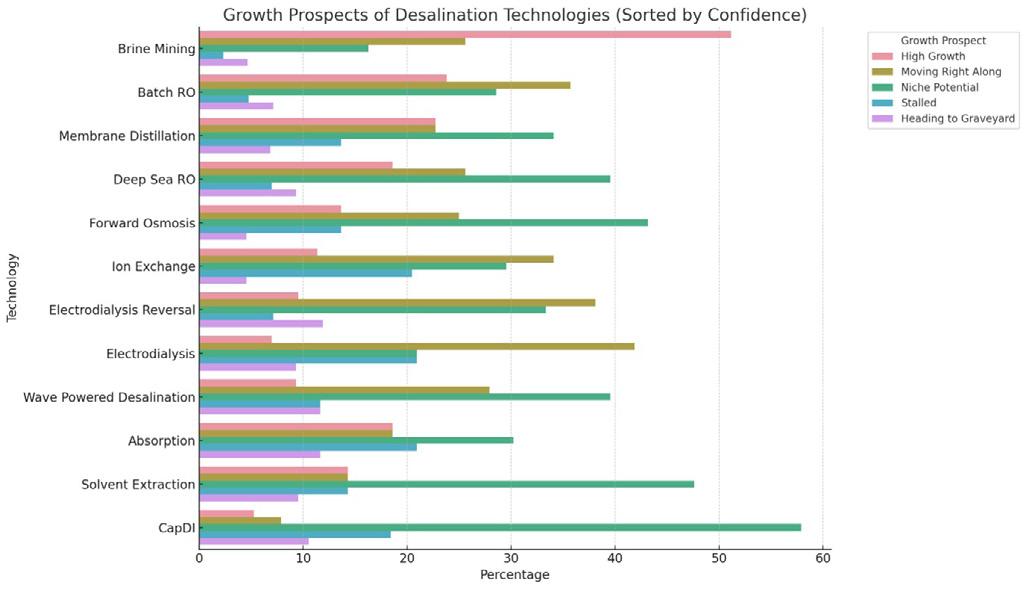
43 BLUETECH AND IDRA SURVEY
Figure 1: Responses to question 2, ordered by total interest, combining the responses for high growth potential, moving right along, niche potential, stalled, and heading to graveyard/zombie categories.
Brine mining
Brine mining has the strongest showing. Most brine mining focus has been on recovering materials of value from seawater; materials that can provide an income stream to directly improve the economics of desalination. Brine mining is at a relatively early stage, but will increasingly be perceived as part of the path toward more sustainable brine management and circular economy practices. Significant interest is focussed on the efforts towards brine mining as part of the desalination build-out at NEOM in Saudi Arabia.
Batch RO
While effective, the constant pressure feed design of continuous RO has inherent energy inefficiencies that can hamper the process's overall efficiency. Batch RO is a redesign of the traditional RO process, developed to overcome the energy inefficiencies of continuous RO. In academia, batch RO has been investigated and developed since around 2010. Since then, two start-up companies have emerged that aim to commercialize the technology as an energy efficient alternative to high-recovery RO systems such as closed-circuit RO (CCRO), which effectively operates as a semi-batch process: Harmony Desalting and Salinity Solutions. As an incremental improvement of an existing extremely successful technology, it’s no surprise that the industry has confidence in its growth potential.
Membrane distillation
BlueTech estimates the current market size for
membrane distillation (MD), the which was in in third place in terms of respondent’s confidence in its growth potential, at around $15-30M per year. The main promise of MD is that it can treat water that is too saline for conventional reverse osmosis and can operate at lower temperatures (between 30°C and 90°C) than many brine concentrating technologies such as thermal evaporators. The possibility of utilizing lowgrade heat from sources such as solar, district heating or waste heat has been one of the main advantages of MD.
Deep sea RO
Subsea or deep-sea RO (DSRO) featured surprisingly highly. It is a novel approach to seawater desalination, exploiting the natural, high-pressure environment found in deep-sea settings to drive the desalination process. This method provides an energy-efficient, potentially more sustainable solution to freshwater scarcity, especially suitable for coastal regions. Thus far, there is no full-scale commercial installation of a DSRO system. However, several companies have constructed pilot and demo systems that prove the viability of the technology concept. Most notably, Waterise has deployed DSRO systems of the coast of Jeddah, Saudi Arabia and in the Boknafjord, Western Norway in 2021 and 2020.
Countries
Question 3 asked respondents to give their impression of how many countries a technology has been used in. Figure 2 illustrates the distribution of responses regarding the number
44 BLUETECH AND IDRA SURVEY
of countries that have adopted various desalination technologies, categorized into three groups: less than 10 countries, between 10 and 25 countries, and more than 25 countries. The technologies are ordered by the percentage of
responses indicating adoption in more than 25 countries. This visualization highlights which technologies are most widely adopted globally, with ion exchange leading in terms of international acceptance.
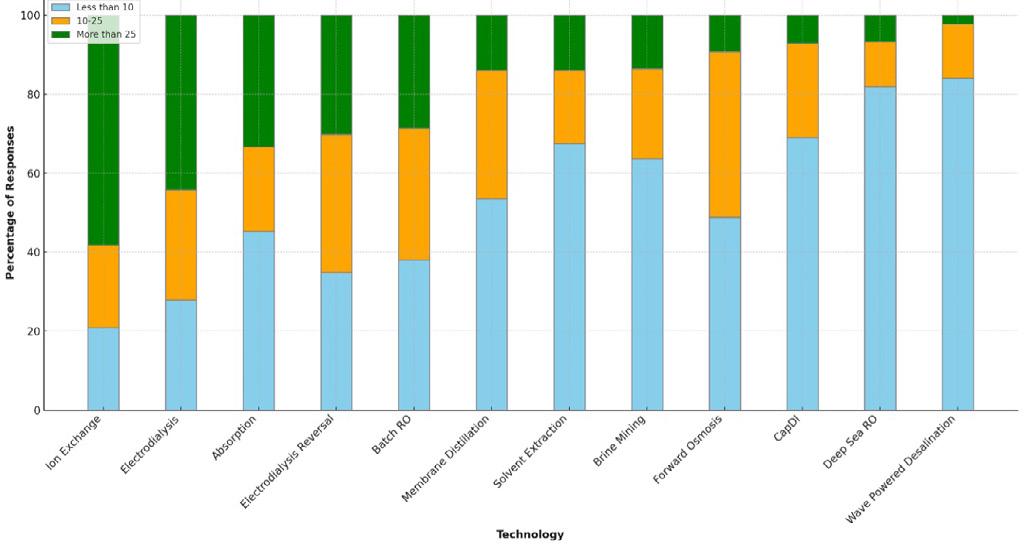
Research gaps
Question six in the survey asked: What do you feel are the biggest unanswered questions in desalination? What would you like more research on? A majority of respondents (33) provided answers. The answers clustered around a few common themes, including investigating solutions to prevent or reduce microbial degradation of membranes, seeking innovative and environmentally-friendly methods for disposing of or repurposing the brine byproduct from desalination, and researching the development and application of dynamic membranes in water treatment for improved efficiency and adaptability.
Summary
The responses showed a significant degree of confidence in those emerging desalination technologies where real-world value has already been demonstrated (brine mining, membrane desalination). More surprising was the relative enthusiasm for deep sea RO – however, there are existing pilots and demonstration installations with investment backing, so we are likely to see confirmed results in due course.
For the full version of this article, including survey questions and more detailed analysis of responses, follow this link.
45 BLUETECH AND IDRA SURVEY
Figure 2: Responses to question 3, ordered by overall number of countries considered to be using the relevant technology.
THE TERM 21 IDRA BOARD
NOMINATION AND ELECTION
PROCESS STARTS AUGUST 5TH, 2024

THE INTERNATIONAL DESALINATION AND WATER REUSE ASSOCIATION'S NOMINATION PERIOD FOR THE IDRA 2024-26 TERM 21 BOARD OF DIRECTORS IS SCHEDULED TO COMMENCE ON MARCH 1ST, 2024.
Schedule
Promotion of Nomination
Opening of Nomination Period
Deadline to Nominate
Voting Opens for 2024-26 Term 21
Voting Closes for 2024-26 Term 21
Online Ballot Results Certified by Third-Party Ballot Agency and approved by Member and Election Committee
Results Announced and Posted
Board Transition
Nominations
To qualify, candidates must have been active IDRA members since July 1, 2023, to be eligible to stand for election. The IDRA Board is a working board with several standing and special committees. Candidates should have strong industry knowledge, an understanding
March 1st, 2024
August 5, 2024
September 24, 2024
September 25, 2024
November 13, 2024
November 13- 23, 2024
November 24, 2024
December 12, 2024
IDRA World Congress, Abu Dhabi, UAE
of IDRA’s mission, Constitution, and Bylaws, and be available to dedicate considerable time to their duties should they be elected. Directors are expected to attend two board meetings annually, actively participate in IDRA’s programs, events, and committees, and undertake special assignments.
IDRANEWS 46 IDRANEWS
Candidate Eligibility
To be placed on the ballot, candidates must have been:
1. Selected by the Membership & Elections (M&E) Committee.
2. Self-nomination is also accepted.
3. Proposed by letter or petition by at least five Class I and II members or their designated representatives from the same region.
4. Submit a written request to the M&E Committee to be considered for election and be sponsored by at least Five Class I and II members or their designated representatives.
5. Candidates must: (a) be prepared to serve the desalination and water reuse community rather than espouse the particular interest of any single entity; (b) maintain confidentiality on the business of the Board, agree to non-compete; (c) avoid prejudiced judgments on specific issues, and (d) have a good standing within the desalination and water industry.
Regional Representation
Regional Representation has been defined by the proportion of active Class I and II members in good standing in each region. Twenty-one (21) directors may be elected to the Board of Directors, and each region may have at least one and no more than seven. Based on the membership numbers, the regional allocation of Directors for the 2024 election is as follows:
Elections
Directors are elected by the IDRA Class I and II members through the E-Ballot online voting platform. The Membership and Elections Committee asks that each candidate provide:
ʞ A high-resolution photo
ʞ Short Biography – Max 150 Words
ʞ Brief description of what they intend to contribute to the Association
ʞ Signature on Board Governance and Confidentiality Agreement
Ballots will be sent to all active members via E-Ballot on September 24, 2024, to commence voting. IDRA Members will be able to log in and vote electronically. Voting will close on November 13, 2024. Results will then be certified and approved for posting on the IDRA website (www. idrawater.org) on November 23, 2024. An email bulletin will be sent out announcing the elected directors. The transition of the Board will take place on December 12th, 2024, at the IDRA World Congress 2024 in Abu Dhabi.
From August 5 to September 24, 2024, Members can send nominations to IDRA via easg@ idrawater.org with the following subject: Nomination for Term 21 IDRA Board of Directors.
Self-nomination is also accepted and can be sent to easg@idrawater.org
IDRANEWS IDRANEWS 47
Europe Middle East, Africa Pacific Asia 5 7 4 Latin America, Caribbean North America Grand Total 1 4 21

For the IDRA, being water positive means compensating for your water footprint by producing high-quality water and reducing water consumption. Scientific evidence shows that rainwater harvesting can prove to be a useful method of being water-positive+. Although it has pros and cons, evidence shows that the only differentiator contributing to the result is the implementation of specific
systems. However, this can be done more efficiently through desalination and water reuse. Therefore, Desalination and water reuse are effective means of helping the natural water cycle. While industries remain steadfast in producing goods, food, and services at a high rate – only by being water positive+ can we create impact where it matters most.
LEARN MORE ABOUT THE IDRA BE WATER + PROGRAM
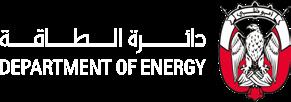
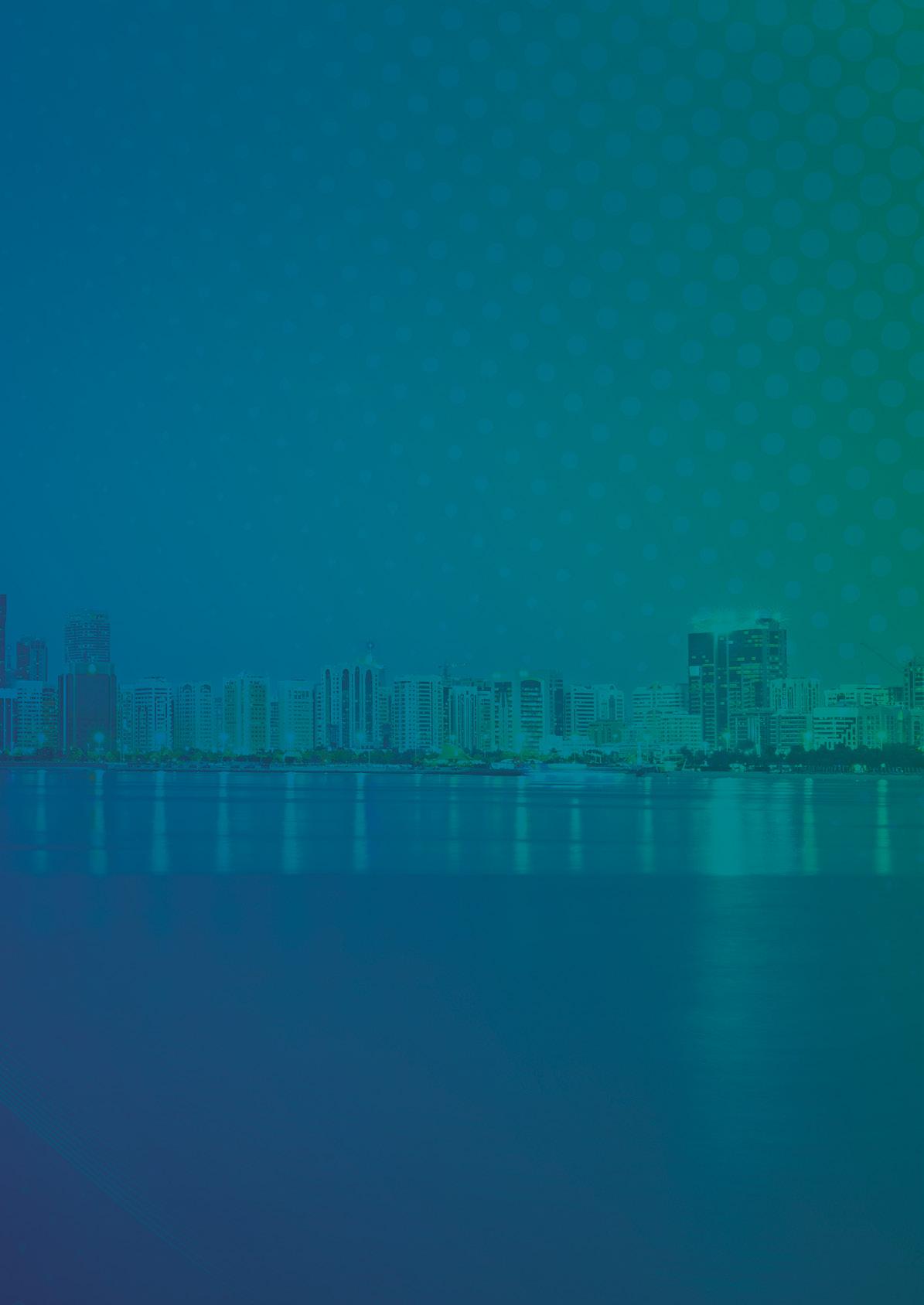
wc.idadesal.org 49 49 Hosted by 8 - 12 DECEMBER ABU DHABI - UNITED ARAB EMIRATES wc.idadesal.org

ABOUT THE CONGRESS
The IDRA World Congress 2024, proudly hosted by the Abu Dhabi Department of Energy with widespread endorsement from key government stakeholders, is a unique platform for profound knowledge-sharing and impactful interaction. This congress is strategically designed to pave the way to a more secure water future by delving into various technical and business topics that revolve around innovative desalination and water reuse solutions.
In the face of mounting challenges to water security and the escalating impact of climate change-induced droughts and floods, Desalination and Water Reuse emerge as resilient solutions poised to meet the surging global water demand. Significant challenges persist despite progress towards achieving UN Sustainable Development
Goal #6, Water and Sanitation for All. Billions of people still lack access to safe water, sanitation facilities, and clean water for agricultural purposes remains under constant threat. With population growth, industrial water demands, and the rising global temperature, water security is at risk.
We eagerly look forward to your active participation at the IDRA World Congress 2024 in Abu Dhabi! Registration is open, and early bird rates will be available until March 30th. Please quickly take advantage of this opportunity by visiting wc.idadesal.org to secure your spot.
Take advantage of the Early Bird Rates. Join us in shaping the future of water sustainability!
8 - 12 DECEMBER ABU DHABI - UNITED ARAB EMIRATES wc.idadesal.org 50
CLICK HERE TO REGISTER

PROGRAM
The World Congress agenda will span four days, featuring four tracks of full-day parallel technical sessions, high-level plenary sessions, a Leaders Summit, Hackathon, Datathon, engaging business discussions, IDRA Academy Courses, dynamic Plant Tours, an enchanting Welcome Reception, a memorable Gala Dinner, and an inspiring Awards Ceremony. The Congress Technical Program
Committee is led by one esteemed member of the IDRA Board of Directors and two distinguished experts from the Abu Dhabi Department of Energy, who will serve as the Technical Program Committee Co-Chairs. Together, they are assembling a dynamic technical committee comprising members from diverse areas of expertise from across the globe.
WORLD CONGRESS PROGRAM OVERVIEW
AM PM
8 - 12 DECEMBER ABU DHABI - UNITED ARAB EMIRATES
Date Evening 08/12/2024 (Sunday) 11/12/2024 (Wednesday) 10/12/2024 (Tuesday)
(Monday) Welcome Reception Gala Dinner & Awards Ceremony Open Evening Term 21 Board Meeting #2 Leader Summit Reception Opening Ceremony
Luncheon and Technical Award Ceremony Registration Open @5pm Technical Program Thematic Program Exhibition Opens Majlis Discussion Forum Training Courses & Workshops Technical Program Outgoing Board Meeting
Program Exhibition Leader Summit Plant Tours Exhibition Technical Program Incoming Board Meeting
Discussion Forum
Program
Discussion Forum
Majlis Discussion Forum Technical Program Exhibition Thematic Program
(Thursday) wc.idadesal.org 51
09/12/2024
Closing
Thematic
Majlis
Thematic
Majlis
12/12/2024

THE WORLD CONGRESS TECHNICAL PROGRAM IS SHAPED AROUND TEN MAIN TOPICS:
Exploring Crucial Topics:
Topic 1:
Desalination and Reuse: Regulations
Topic 2:
Desalination and Reuse: Innovation and Emerging Technologies
Topic 3:
Desalination and Reuse: PPP and Finance
Topic 4:
Desalination and Reuse: Energy
Topic 5:
Desalination and Reuse: Climate Adaptation
Topic 6:
Desalination and Reuse: Sustainability and Environmental Responsibility
Topic 7:
Desalination and Reuse: Net Zero and a Circular Water Economy
Topic 8:
Desalination and Reuse: Irrigation and Food Security
Topic 9:
Desalination and Reuse: Social Responsibility
Topic 10:
Lessons Learned in Desalination and Reuse
wc.idadesal.org 52 8 - 12 DECEMBER ABU DHABI - UNITED ARAB EMIRATES

1. DESALINATION AND REUSE: REGULATIONS
Topic Chair: Dr. Marshall Davert, Executive VP, Global Major Pursuits Director, Stantec
Regulations significantly impact the planning, design, and operation of any water treatment/ distribution system. In addition, it also requires existing systems to implement modifications to meet new requirements.
We welcome abstracts on the impact of regulations for the topics listed below.
> Water Quality Monitoring and Health: Addressing PFAS/PFOS, Microplastics, and pollutants.
> Water Reuse Direct Potable Water Reuse and In-direct Potable Water Reuse
> Intake and Outfall Systems
> Distribution Network and Systems
> Smart Infrastructure
> Water Usage Optimization
2. DESALINATION AND REUSE: INNOVATION AND EMERGING TECHNOLOGIES
Topic Chair: Dr. Yvan Treal, Development Director, SUEZ International
Innovation is essential to meet the ever-moving goalposts of water security and sustainability. Innovation can be a novel and/or emerging technology but it can also be the optimization of an existing technology and/or process-system. We are interested in receiving papers and case studies on topics such as:
> Reaching the Lowest Cost Desalination and/or reuse plants
> From Ideas to Commercialization: limitations, successes and failures
> Bioengineering
> Membrane Science
> Zombies
> Zero Liquid Discharge
> Transforming Brine into a product and/or brine reuse
> Machine Learning, Artificial Intelligence, Big Data, Digital Twins
> Benchmarking and Data Ontology
> Data-driven Decision Support
> Cybersecurity in Water
> Engineering Optimization in the Design and Process of Seawater and Brackish
> Desalination and Water Reuse Plants
wc.idadesal.org 53 8 - 12 DECEMBER ABU DHABI - UNITED ARAB EMIRATES

3. DESALINATION AND REUSE: PPP AND FINANCE
Topic Chair: Mr. Zael Sanz, Senior Water and Sanitation Specialist, World Bank
Financial impact on water cost and project viability is relevant to address the actual macroeconomic situation that could jeopardize the global clean water availability challenge.
The innovation in financing structures and coverages is relevant to achieving project development even in adverse scenarios. The adaptation capacity of these solutions will open new investment opportunities. We look for papers and case studies related to topics such as:
> New Creative Financing Structures to Optimize Water Cost
> ESG Financing, Green Bonds
> Innovations on Securities and Guarantees
> Government Support to manage Water Costs, New Tax Structures, Grants... Carbon
> Negative Finance Incentives to Leverage Water Cost Reduction Project Delivery
> Models for Big-Desal
> Big Data for Financing Models
> Long-term Successes with Project Models and Financing
> Desalination Price Challenges and Realities
> Water Price, Inflation, Wars, Conflicts, Interest Rates Increase and their impact on water availability
> Financing Adaptation to Particular Conditions to a Project Location
4. DESALINATION AND REUSE: ENERGY
Energy use in desalination and reuse continues to be a fast-changing area in both how it is produced, and consumed, as well as how it is managed. This is especially true around the world in municipal, industrial, and agricultural applications. We are looking for case studies that show the use of renewable energy including solar, wind, wave, gravity, salinity gradients, etc. In particular, we are looking for case studies of how mega plants are continuing to increase sustainability and at the same time driving down capital and operational costs in relation to energy and the CO2 footprint. We are also interested in the smaller scale applications using renewable energy and innovative energy management, especially research programs leading the way for greater resilience, sustainability, and security. For a totally new area, a couple of papers on
atmospheric water harvesting and its implications are encouraged. The smaller-scale applications or unit operations may either be presented as a case study or a research paper.
We welcome the submission of papers and case studies on topics such as:
> Solar, Wind, Wave, Gravity, Salinity Gradient Project Case Studies Nuclear power including fission and fusion
> Improvements for Hybrid Renewable Projects
> Mega Projects Using Renewable Energy
> Cutting-edge Research in Desalination and Renewable Energy Energy Recovery Systems
8 - 12 DECEMBER ABU DHABI - UNITED ARAB EMIRATES wc.idadesal.org 54

5. DESALINATION AND REUSE: CLIMATE ADAPTATION
Topic Chair: Mr. Thomas Altman, EVP - Innovation & New Technology, ACWA Power
The role of climate on water security has become obvious around the world. It is exposing communities to a wide range of challenges including depleting aquifers, seawater intrusion into the groundwater supplies, and flooding. Water security can be achieved by integrating different technical approaches. In addition, decarbonizing the water sector contributes to less fossil fuel dependency, which enables new water treatment/distribution systems.
We welcome papers and abstracts on climate adaptation and mitigation on topics such as:
> Brine Management, Valorization and Resource Recovery
> Clean Energy
> Carbon Neutral/Reduction
> Pre-Treatment and Post-Treatment (marine ecosystems and public health)
> Produced Water
> Green (and other colors of) Hydrogen
6. DESALINATION AND REUSE: SUSTAINABILITY AND ENVIRONMENTAL RESPONSIBILITY
Topic Chair: Prof. Hassan A. Arafat, Senior Director, Khalifa University
The IDRA is strongly committed to sustainability and Environmental responsibility in the water sector. We need to be part of the solution, minimizing the negative impact that these solutions could create for the present and for future generations.
We would like to receive papers and case studies on topics such as:
> Water Security
> Pros and Cons of Current Permitting and Regulations Environmental Impact Assessments
> Long-term Impacts of Brine Management on the Environment Energy and
> Chemical Efficiency in Desalination Processes Sludge Treatment in Reuse
> Challenges facing the Oil and Gas industry
8 - 12 DECEMBER ABU DHABI - UNITED ARAB EMIRATES wc.idadesal.org 55

7. DESALINATION AND REUSE: NET ZERO AND A CIRCULAR WATER ECONOMY
Topic Chair: Mr. Adrian Sym, Chief Executive, Alliance for Water Stewardship (AWS)
Net zero refers to the balance between the amount of greenhouse gas (GHG) that's produced and the amount that's removed from the atmosphere. It can be achieved through a combination of emission reduction and emission removal.
The circular water economy is an innovative approach to water management that mimics the natural water cycle by closing the loop on water use and reducing waste.
We would like to receive case studies and papers on topics such as
> Water Footprint
> Carbon Footprint
> Stewardship and Protection of Water Sources
> Closed Loop Systems
8. DESALINATION AND REUSE: IRRIGATION AND FOOD SECURITY
Topic Chair: Eng. Ali Mahmoud Ahmad Alshrouf, Senior Consultant & Researcher, Abu Dhabi Agriculture and Food Safety Authority (ADAFSA)
The four pillars of food security are availability, access, utilization, and stability.
Agriculture irrigation accounts for 70% of water use worldwide and over 40% in many OECD countries. Intensive groundwater pumping for irrigation depletes aquifers and can lead to negative environmental externalities, causing significant economic impact on the sector and beyond. In addition, agriculture remains a major source of water pollution; agricultural fertilizer run-off and pesticide use contribute to the pollution of waterways and groundwater.
> We invite you to submit case studies and papers on topics such as:
> Utilization of unconventional water sources, desalination, and water reuse, in water treatment for food, beverage, and agriculture production.
> Development of crops that require less water and/ or are more tolerant to higher water salinities.
> Case studies on the efficient use of desalination and recycled water for irrigation.
8 - 12 DECEMBER ABU DHABI - UNITED ARAB EMIRATES wc.idadesal.org 56

9. DESALINATION AND REUSE: SOCIAL RESPONSIBILITY
Topic Chair: Dr. Hoon Hyung, President, LG Water Solutions
Social responsibility is a means of achieving sustainability. Adopting key social responsibility principles, such as accountability and transparency, can help ensure the long-term viability and success of any organization or system. Corporate social responsibility is generally categorized in four ways: environmental responsibility, ethical/human rights responsibility, philanthropic responsibility, and economic responsibility
We would like to receive case studies and papers on topics such as:
> Generating and providing water in geographically and socially challenged regions.
> Best practices
> Community Engagement and Education
> Economic Benefits of Clean Water for Local Communities
> Environmental practices
> Safety on-site
10. LESSONS LEARNED IN DESALINATION AND REUSE
Topic Chair: Mr. Miguel Angel Sanz, President, MS Water Consult
A lesson learned is knowledge or understanding gained by experience. The experience may be positive, as in a successful test or mission, or negative, as in a mishap or failure.
> We look forward to receiving abstracts on topics such as: Project design and implementation
> Operation and maintenance
> Engagement and Education of operators and community White elephants

Your commitment to exploring these themes has created a rich tapestry of knowledge that will be showcased at the IDRA World Congress 2024 in Abu Dhabi. We are grateful for your dedication to advancing the field of water management and circular resources and look forward to sharing and implementing your knowledge.
8 - 12 DECEMBER ABU DHABI - UNITED ARAB EMIRATES wc.idadesal.org 57

IDRA WORLD CONGRESS 2024 TECHNICAL PROGRAM COMMITTEE CO-CHAIRS:
The World Congress agenda will span four days, featuring four tracks of full-day parallel technical sessions, high-level plenary sessions, a Leaders Summit, Hackathon, Datathon, engaging business discussions, IDRA Academy Courses, dynamic Plant Tours, an enchanting Welcome Reception, a memorable Gala Dinner, and an inspiring Awards Ceremony. The Congress Technical Program

Mrs. Jantje Johnson CEO and Founder, OrangeBoat, United States
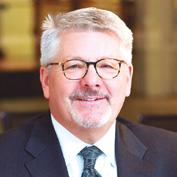
Dr. Marshall davert Executive Vice President, Global Major Pursuits Director, Stantec
TOPIC CHAIRS
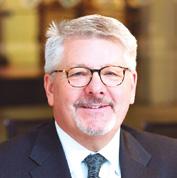

Committee is led by one esteemed member of the IDRA Board of Directors and two distinguished experts from the Abu Dhabi Department of Energy, who will serve as the Technical Program Committee Co-Chairs. Together, they are assembling a dynamic technical committee comprising members from diverse areas of expertise from across the globe.

Mr. Victor Verbeek Head of Technical Development Asia Pacific, Toray Membrane, Australia

Dr. Shamma Al Malek Strategy Development Director, Abu Dhabi Department of Energy, United Arab Emirates

Eng. Jamal Fahmi Shadid Policy Development Director, Abu Dhabi Department of Energy, United Arab Emirates
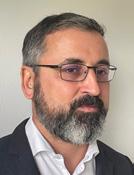
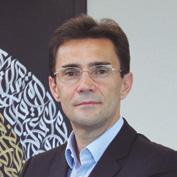
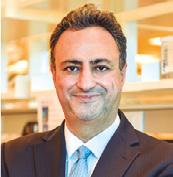
Senior Director Research & Innovation Center for Graphene and 2D Materials (RIC-2D), Khalifa University
wc.idadesal.org
8 - 12 DECEMBER ABU DHABI - UNITED ARAB EMIRATES
Dr. Marshall Davert Executive Vice President, Global Major Pursuits Director, Stantec
Dr. Yvan Treal Development Director, SUEZ International
Mr. Thomas Altman EVP - Innovation & New Technology, ACWA Power
Mr. Zael Uriarte Senior Water and Sanitation Specialist, World Bank
Prof. Hassan A. Arafat
58


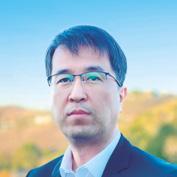

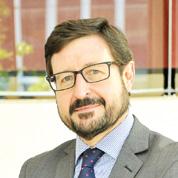
SESSION CHAIRS:
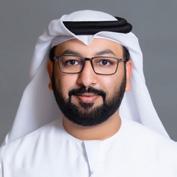



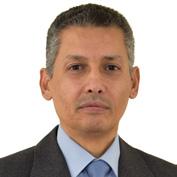

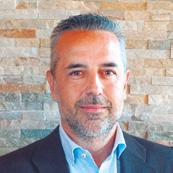

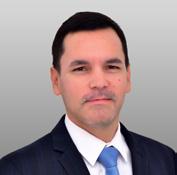
 Dr. Mohamed Saleh Alhadhrami
Standards Energy & Water Efficiency Section, Department of Energy Abu Dhabi
Dr. Mohamed Saleh Alhadhrami
Standards Energy & Water Efficiency Section, Department of Energy Abu Dhabi
8 - 12 DECEMBER ABU DHABI - UNITED ARAB EMIRATES
Mr. Miguel Angel Sanz President, MS Water Consult
Mr. Adrian Symm Executive Director, Association for Water Stewardship
Dr. Hoon Hyung President, LG Water Solutions
Eng. Ali Mahmoud Ahmad Alshrouf Senior Consultant & Researcher Abu Dhabi Agriculture and Food Safety Authority (ADAFSA)
Mr. Borja blanco CEO, Aqua Advise
Dr. Giancarlo Barassi Technical Director, American Water Chemicals
Mr. Pedro Almagro CEO, Lantania
Ms. Nadya Mohammed Ali Water Policy & Strategy Section Head, Department of Energy Abu Dhabi
Mr. Mohamed Bayoum Environment Specialist, UNDP
wc.idadesal.org
Ms. Sophie Bertrand Strategic Development Deputy Director, Suez
Dr. Antonio Casañas Senior Account Manager, DuPont Water Solutions
Mr. Oscar Calles Manager, Desalination & Process, TAQA
Dr. Veronique Bonnelye
59
Position Title Technical Support Manager, SUEZ International




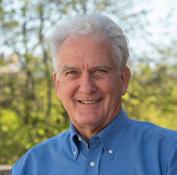

Dr. Antonella De Luca Head of Competence Center Environmental Solutions, Omya International AG
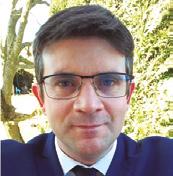
Mr. Sylvain Donnaz Global Technology Leader, Biology Applications & Systems, Veolia Water Technologies & Solutions
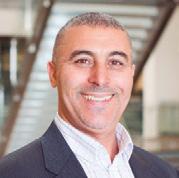
Dr. Noreddine Ghaffour Professor, King Abdullah University of Science and Technology (KAUST)





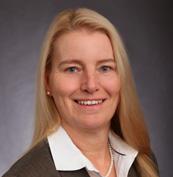

Dr. Belen Gutierrez Head of Desalination Department, Research and Development Direction, GS Inima Environment


Dr. Jenny Lawler Senior Research Director Qatar Environment and Energy Research Insititute, Water Center, Qatar Foundation

Dr. Shadi Hasan Director, Center for Membranes & Advanced Water Technology, Khalifa University of Science and Technology
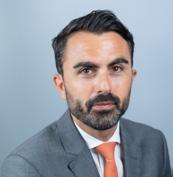
Mr. Roberto Magnano Managing Director, ILF Consulting Engineers
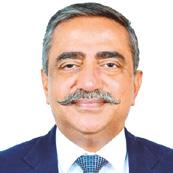
Mr. Ramashankar Jagwani General Manager, PROJECX

Mr. Jorge J. Malfeito Director of Innovation Water, ACCIONA
8 - 12 DECEMBER ABU DHABI - UNITED ARAB EMIRATES
Mr. Doug Eisberg VP of Sales, Avista
Dr. Mark Dent Senior Advisor, Alliance for Water Stewardship (AWS) South Africa
Dr. Mike Dixon CEO, Synauta
Dr. Heike Glade Senior Researcher, Bremen University
Dr. Emilio Gabrielli Independent Consultant
Ms. Silvia Gallego Sales Manager, LG Water Solutions
Dr. Beatriz Garcia Fernandez Chief Technology Officer, Waterise
Dr. Steven Lam VP, NPI Operations, Gradiant
wc.idadesal.org
Dr. Latifa Lahsine Head of Desalination Centre of Exellence, Engie
Dr. Gary Crisp Chief Engineer, Sequana
60
Mr. Guillaume Clairet Chief Operating Officer H2O Innovation


Mr. Naoll Mary Water Security and Climate Resilient Infrastructure, IFC - International Finance Corporation

Mrs. Delia Pastorelli Desalination Technical Manager, Suez

Mrs. Olga Sallangos Dhekelia Desalination Plant Manager, Caramondani Desalination Plant

Mrs. Marie-Laure Thielens ,Ingenieur Specialist, Laborlec NV / Engie
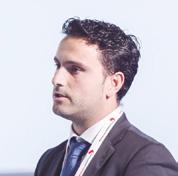
Dr. Victor Monsalvo Head of Eco-efficiency Area – Innovation and Technology Department, FCC Aqualia

Mrs. Nuria Pena García Director of Global Scientific Services, H2O Innovation
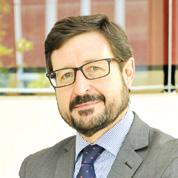
Mr. Miguel Angel Sanz President, MS Water Consult
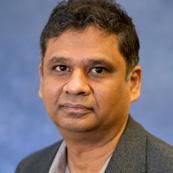
Mr. Vasu Veerapaneni Water Treatment Department Head, Global Practice Leader - salination and Reuse Black & Veatch

Dr. Tariq Nada Vice President Water Business, ACWA Power
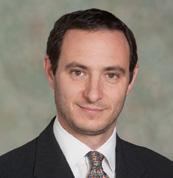
Mr. Yvan Poussade Senior Techncial Expert, Veolia
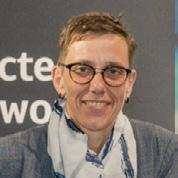
Ms. Constanze Simmermacher Portfolio Manager Water Treatment Plants Singapore / Process Engineering Lead, Jacobs

Mr. Nikolay Voutchkov Executive Director, NEOM Research Institute

Dr. Abraham Nagresh Associate Director –Desalination and Reuse Lead, WRc Group

Mr. Kevin Price Principal, AWTT, LLC

Mr. Lars Spaeth General Manager, Passavant -Geiger Aqseptance Group
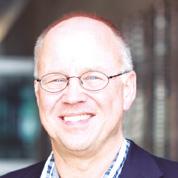
Mr, Johannes Vrouwenvelder Director Water Desalination and Reuse Center, King Abdullah University of Science and Technology (KAUST)
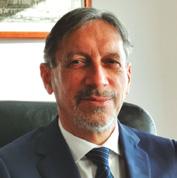
Mr. Silvio Oliva Water Consultant , Former CEO of Fisia Italimpiantiw

Mrs. Blanca Salgado Global Technical Service and Development Leader, Water Solutions, DuPont Water Solutions
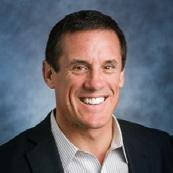
Dr. Rick Stover Independent Consultant

Mrs. Hattie Wang Vice President, ROPV
8 - 12 DECEMBER ABU DHABI - UNITED ARAB EMIRATES
wc.idadesal.org
61

SCHEDULE
22 March 2024
Acceptance: Notification to Authors
22 May 2024
Deadline: First draft papers submission
15 June 2024
Deadline: Presenter Registration, Photo and Bio Submission, Final Manuscript and Copyright Agreement
15 August 2024
Available: Advance Program
15 September 2024 Deadline: First Draft PowerPoint Presentations
30 October 2024
Deadline: Final PowerPoint Presentations
8 December 2024 Available Final Program

Don't miss the chance to position your brand at the epicenter of innovation! The exhibition stands as the nucleus of the World Congress, granting direct access to four days of cutting-edge technical sessions, prestigious plenary gatherings, an exclusive Leaders Summit, impactful business discussions, enriching IDRA Academy courses and workshops, plant tours, and unparalleled networking events.
wc.idadesal.org
wc.idadesal.org
8 - 12 DECEMBER ABU DHABI - UNITED ARAB EMIRATES
UNLEASH YOUR BUSINESS POTENTIAL: ELEVATE YOUR PRESENCE AT THE HEART OF THE WORLD CONGRESS!
62

BOOK YOUR EXHIBITION SPACE!
IDRA WORLD CONGRESS 2024 FLOORPLAN
IDRA WORLD LOUNGE 1 EXHIBITION AREA
VICTAULIC
2024 FLOORPLAN GAS LAB
FPI H2O
ACWA
DANFOSS IDRA DOE
that will propel your business and help solve water scarcity. For more information, read the Exhibition Prospectus. Online form. ENTRANCE
LG CHEM
FEDCO RECOVERY
INGE TEAM 63
8 - 12 DECEMBER ABU DHABI - UNITED ARAB EMIRATES wc.idadesal.org
TITANIUM 54 sqm PLATINUM 36 sqm GOLD 27 sqm SILVER 18 sqm BRONZE PREMIUM 9sqm BRONZE 9 sqm EXHIBITION BOOTH LEADERS SUMMIT DIAMOND SPONSOR 45 sqm 104 151 117 113 ENTRANCE 5 6 7 8 1 2 3 4 9 10 11 12 13 14 15 16 17 18 19 20 LOUNGE 1 EXHIBITION AREA LOUNGE 2 GAS LAB 21 22 23 24 25 26 27 28 29 30 31 32 33 34 35 36 37 39 40 41 38 42 43 44 47 48 59 60 61 63 64 65 62 66 81 85 86 87 84 88 89 90 92 93 91 94 103 105 106 107 109 110 119 120 121 122 123 124 125 126 141 142 143 144 145 146 147 148 73 74 75 77 76 80 95 96 97 99 100 101 102 98 118 51 52 53 55 56 57 54 58 133 134 135 136 137 138 139 127 128 129 130 131 132 140 149 150 152 153 154 155 156 114 VICTAULIC DUCHTING AMERICAN WATER CHEMICALS TORISHIMA DANFOSS BEAUDREY IDRA DOE ABU DHABI LG CHEM ACWA POWER FPI CHART INC AQUALIA H2O FEDCO ENERGY RECOVERY FLOWSERVE TOYOBO TORAY DRYDEN AQUA BELGICATS PROTEC ARISAWA VTE FILTER INGE TEAM PLENARY THEATER LUNCH AREA
CONGRESS
By exhibiting at the IDRA World Congress 2024, you're not just participating in an event – you're actively shaping the future of our industry, creating lasting impressions, and fostering collaborations TITANIUM 54 sqm PLATINUM 36 sqm GOLD 27 sqm SILVER 18 sqm BRONZE PREMIUM 9sqm BRONZE 9 sqm EXHIBITION BOOTH LEADERS SUMMIT DIAMOND SPONSOR 45 sqm

IGNITE YOUR BRAND - UNLOCK SPONSORSHIP OPPORTUNITIES AT IDRA WORLD CONGRESS 2024!
The IDRA World Congress has been the premier event in desalination and water reuse technologies for over thirty years. Join the brightest minds in the sector as they address water scarcity and climate change's impact on the water ecosystem.
We are actively accepting sponsorship bookings. Contact the IDRA team at sponsorships@idrawater. org for more information.
SPONSORS TO DATE
Titanium Sponsor
Platinum Sponsors

Gold Sponsor
Silver Sponsor

8 - 12 DECEMBER ABU DHABI - UNITED ARAB EMIRATES wc.idadesal.org
64

EXHIBITORS TO DATE










MEDIA PARTNERS

























8 - 12 DECEMBER ABU DHABI - UNITED ARAB EMIRATES wc.idadesal.org
SUPPORTING
American Water Chemicals IDRA AFFILIATES 65
ASSOCIATION PARTNERS
NOMINATION PERIOD OPENS FOR IDRA 2024 INDUSTRY AND SUSTAINABILITY AWARDS
IDRA is delighted to announce the opening of the Industrial & Sustainability Awards nomination period. The awards will be presented at the IDRA 2024 World Congress Gala Dinner.
Those who challenge themselves to innovate and meet the increasing demands for municipal and industrial water needs will be acknowledged for their exceptional contributions to the Desalination and Water Reuse Sectors.
Nominations can be made by IDRA members only. However, IDRA membership is not required for the entity being nominated.
Please send nominations to awards@idrawater.org
on or before the deadline of August 31st, 2024, the following information is required:
1. The name of the nominee
2. The specific Award
3. How the nominee exemplifies the spirit of the award (500 words) + references.
Below is the list of awards for the Desalination and Water Reuse Sector. Descriptions can be found here.

01. The Excellence in Public-Private Partnership Award
02. The Pinnacle of Innovation Award for Most Innovative Utility in Water Management
03. The Breakthrough Innovation Award for Most Innovative Company in Desalination Technology
04. The Visionary Leadership Award for The Most Progressive Disruptive Policy in Water Reuse
05. The Excellence in Water Reuse Performance Award
SUSTAINABILITY AWARDS
01. The Resilience Excellence Award for The Most Resilient City
02. The Nexus Innovation Excellence Award for The Most Innovative Water-Energy Nexus Project
03. The Global Sustainability Leadership Award for Best Implementer of UN SDG 6: Water for All
04. IDRA Award for Lowest Carbon Footprint in Desalination
05. The IDRA Resilience in Action Award for Circular Water Resources
06. The IDRA Corporate Social Responsibility (CSR) Excellence Award
07. The IDRA Water Positive Achievement Award
wc.idadesal.org
8 - 12 DECEMBER ABU DHABI - UNITED ARAB EMIRATES
INDUSTRY AWARDS
66

IDRA WORLD CONGRESS LEADERS SUMMIT
IDRA presents the IDRA World Congress 2024 Leaders Summit - an exceptional one-day event held on Tuesday, December 10, 2024 in parallel with the Technical Program.
This is an exclusive opportunity to interact with peers from across the sector. Special registration is required. More details about the program will follow.
8 - 12 DECEMBER ABU DHABI - UNITED ARAB EMIRATES wc.idadesal.org
67
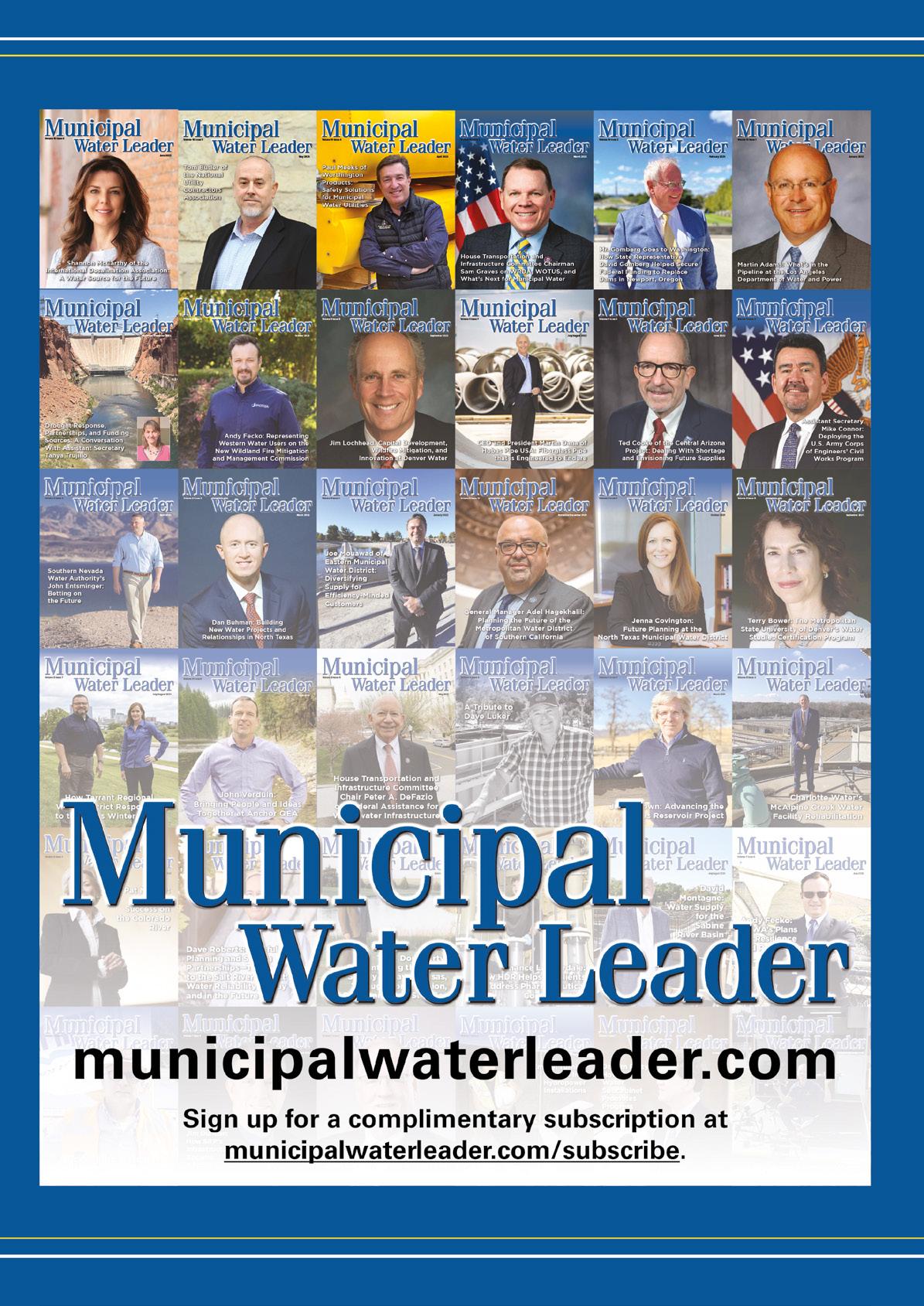
Don’t filter out the Membrane Technology Conference!
The world of advanced membrane technologies brings together leading scientists, engineers, and industry professionals as we explore the latest developments in water treatment, desalination, and research. Dive deep into the realm of membranes and discover transformative, sustainable solutions.
Presented by:

Register Today at awwa.org/MTC24a 2024
March 4–7, 2024 | West Palm Beach, FL
IDRA Affiliate North America
EMBRACING THE FUTURE:
IDA EVOLVES INTO IDRA - INTERNATIONAL DESALINATION AND REUSE ASSOCIATION
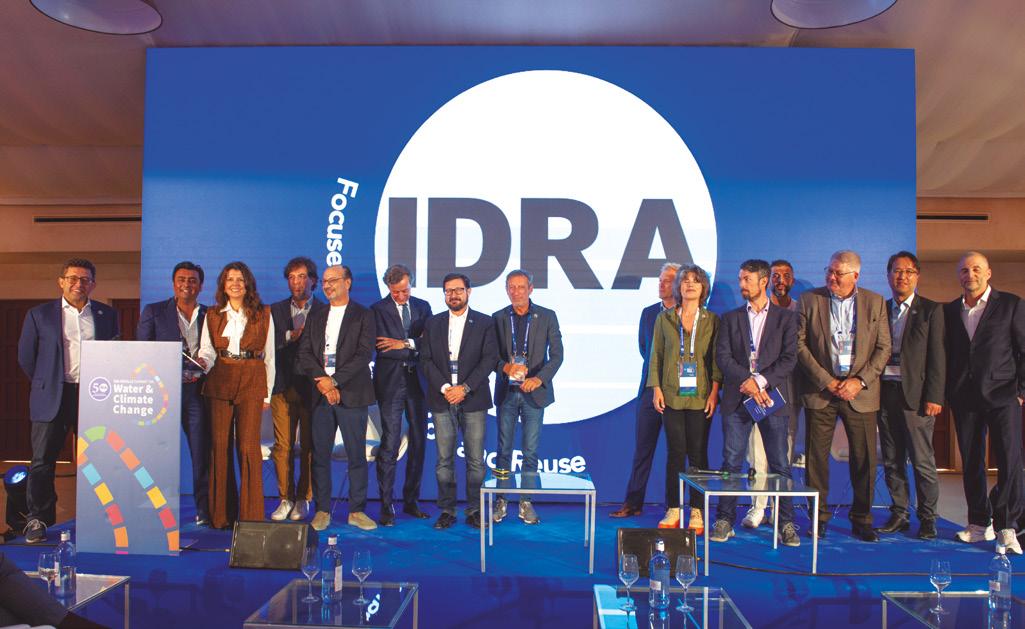
In a bold step towards a more inclusive and forward-looking future, the International Desalination Association (IDA) proudly announces its transformation into the International Desalination and Reuse Association (IDRA). This significant change underscores the organization's
commitment to addressing global water challenges and amplifies its dedication to sustainable water management practices.
Although Reuse has always been part of the IDRA mission, incorporating "Reuse" in the
IDRANEWS 70 IDRANEWS
association's name reflects a strategic move to embrace a broader spectrum of sustainable water practices, ensuring a comprehensive approach to water sustainability.
with strategic partners, IDRA aims to accelerate the development and adoption of cutting-edge technologies that will be pivotal to a watersecure future for future generations.
IDRA recognizes that the demand for freshwater continues to rise exponentially, and traditional water sources are under increasing stress. By expanding its name to spotlight water reuse, the association aims to foster colla-
The name change to the International Desalination and Reuse Association is not just symbolic; it marks a strategic shift in the organization's activities.
boration, knowledge-sharing, and technological advancements in desalination and water reuse.
This holistic approach allows IDRA to be at the forefront of driving change and promoting resilient solutions to meet the challenges of the 21st century.
Water reuse has emerged as a crucial component in sustainable water management. IDRA seeks to catalyze innovation and excellence in water reuse technologies through its expanded focus. By uniting professionals, experts, and stakeholders under a common umbrella and working
IDRA is committed to providing a platform for thought leadership, facilitating global collaborations, and promoting best practices in desalination and water reuse as part of this transformation. The association envisions a world where water is treated as a precious resource, and sustainable practices, responsible management of water footprints, and circular resource management ensure water availability for all.
The name change to the International Desalination and Reuse Association is not just symbolic; it marks a strategic shift in the organization's activities.
In the coming months, IDRA will roll out initiatives, events with key partners, and resources that reflect this expanded vision.
IDRA - Shaping the Future of Desalination and Reuse for a Sustainable World.
IDRANEWS IDRANEWS 71
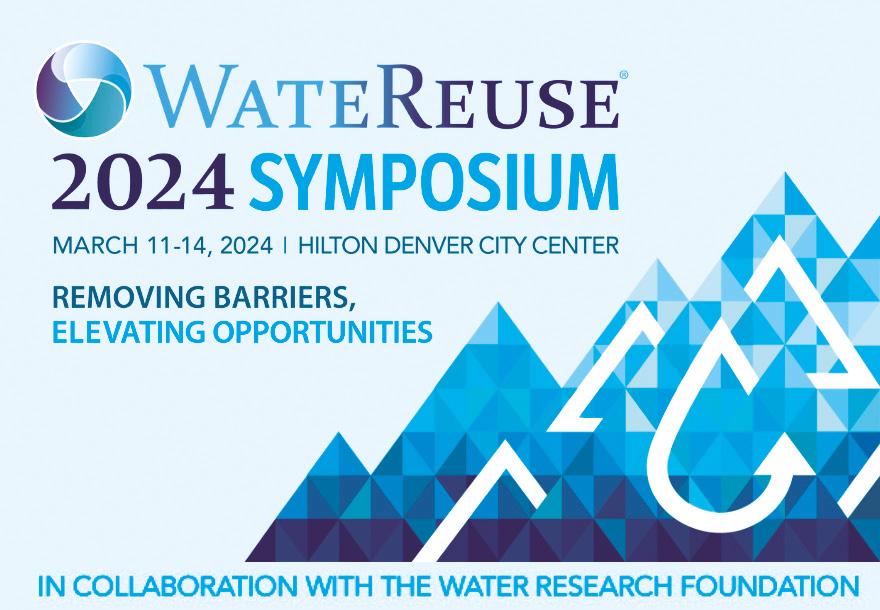
IDRA AT THE 2024 WATEREUSE SYMPOSIUM TO DEVELOP THE WRA – IDRA GLOBAL DIALOGUE POLICY BRIEF
Global Water Reuse Dialogue: Expert Panel
Join the WateReuse Association and the International Desalination and Reuse Association (IDRA) for a two-part conversation on the drivers, challenges, and opportunities for accelerating the adoption of water reuse worldwide. The Global Water Reuse Dialogue will open with a panel of water reuse experts to discuss global governance, financing, regulatory, technology, and communications/ socialization barriers, as well as the solutions needed to accelerate the adoption of water reuse.
Introductory Remarks:
Shannon Mcarthy, Secretary General, International Desalination & Reuse Association
Moderator:
Zohreh Movahed, Watek Engineering & Co-Chair, WateReuse International Committee
Panelists:
1. Hossein Ashktorab, Manager, Valley Water (USA)
2. Danielle Francis, Manager, Policy and Strategy, Water Services Association of Australia
IDRANEWS 72 IDRANEWS
3. Bernard Koh, Assistant Chief Executive, PUB, Singapore’s National Water Agency
4. Booky Oren, Global Water Technologies (Israel)
5. Yvan Poussade, Product Owner – Water Reuse, Veolia (Europe)
6. Gustavo Saltiel, Global Lead for Water Supply and Sanitation, World Bank
The Global Dialogue will continue with an interactive, facilitated roundtable discussion on Wednesday afternoon and conclude with a plenary panel and summary discussion on Thursday morning.
Global Water Reuse Dialogue: International Collaboration and a Path Forward
The Global Water Reuse Dialogue concludes with a report out in a plenary session during the closing day of the Symposium.
Introductory Remarks:
• Shannon Mcarthy, Secretary General, International Desalination & Reuse Association
Highlights from Day One of the Global Water Reuse Dialogue
• Hossein Ashktorab and Zoreh Movahed, CoChairs, WateReuse International Committee
Panel:
Opportunities for International Collaboration on Water Reuse: A Path Forward
Moderator:
Hossein Ashktorab, Manager, Valley Water and Co-Chair, WateReuse International Committee
Panelists:
1. Danielle Francis, Manager, Policy and Strategy, Water Services Association of Australia
2. Bernard Koh, Assistant Chief Executive, PUB, Singapore’s National Water Agency
3. Zohreh Movahed, Watek Engineering & Co-Chair, WateReuse International Committee
4. Booky Oren, Global Water Technologies (Israel)
5. Yvan Poussade, Product Owner – Water Reuse, Veolia (Europe)
6. Gustavo Saltiel, Global Lead for Water Supply and Sanitation, World Bank
Global Water Reuse Dialogue at the IDRA 2024 World Congress
The Global Water Reuse Dialogue continues in December 2024 at the IDRA World Congress 2024 in Abu Dhabi, capturing another set of perspectives. The WRA – IDRA Global Dialogue Policy Brief will summarize the discussions at both events.
IDRANEWS IDRANEWS 73
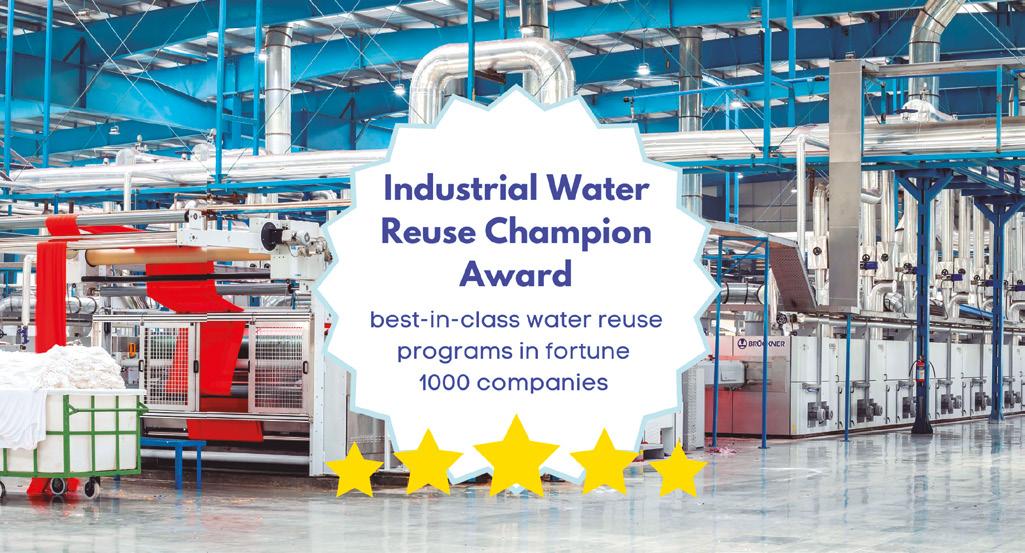
GLOBAL INDUSTRIAL WATER REUSE CHAMPION AWARD
RECOGNIZING LEADERS IN WATER STEWARDSHIP: TO BE PRESENTED AT IDRA WORLD CONGRESS 2024
The prestigious Global Industrial Water Reuse Champions Award, presented by The WateReuse Association, U.S. Chamber of Commerce, Veolia, University of Pennsylvania Water Center, and International Desalination and Reuse Association, is now accepting nominations for the 2024 cycle. Nominate a top Fortune 1000 company by August 31, 2024, that exemplifies excellence
in water recycling and reuse programs, demonstrating a commitment to water stewardship and achieving significant water management goals.
About the Award:
This award acknowledges companies leading the way in water sustainability by implemen-
IDRANEWS 74 IDRANEWS
ting best-in-class water recycling and reuse initiatives. Aligned with the National Water Reuse Action Plan (WRAP), spearheaded by the U.S. Environmental Protection Agency, the program aims to advance science, policy, research, and communication supporting water reuse and recycling.
2023 Award Winners:
• Kimberly-Clark Corporation: Achieving a remarkable 40% reduction in water consumption at water-stressed manufacturing sites in 2022 against the 2015 baseline, with a goal to surpass a 50% reduction by 2030. Implementation of water recycling and enhanced water systems management is evident across multiple manufacturing plants.
• Carlsberg Group: Reduced water consumption by 500,000 cubic meters per year and eliminated wastewater at its flagship brewery in Fredericia, Denmark, utilizing closed-circuit reverse osmosis technology and harnessing byproduct biogas for heating onsite facilities.
• APA Corporation: Recognized for its innovative produced water management approach in
the Permian Basin, sourcing over 95% of water from recycled produced water or non-fresh groundwater. In 2021, 157,980,000 barrels of water used by Apache, a subsidiary of APA, were recycled produced water.
• PepsiCo: Acknowledged for ongoing water reuse efforts and a forward-looking strategy for water resiliency, including targets for 2025 and 2030. Achievements include recycling nearly 75% of process water at a manufacturing facility and providing water stewardship grants for innovative projects.
• Intel: Recognized for investing approximately $1 billion in water recycling infrastructure across operations in Arizona, Oregon, and Israel. Intel's facilities recover 98% of influent wastewater for various uses, and in some locations, the reclaimed water benefits surrounding communities for groundwater recharge, wetlands, and irrigation.
Join us in celebrating these industry leaders and nominate for the 2024 cycle!
Submit Your Nomination Here
IDRANEWS IDRANEWS 75
MENTOR PROGRAM

Join the IDRA Mentorship Program and empower the next generation of industry frontrunners. This program connects young professionals under 35 with industry experts, offering invaluable career opportunities in desalination and water reuse. Open to all IDRA members.
The first round of matching mentors with mentees has been completed, meet the Mentees:



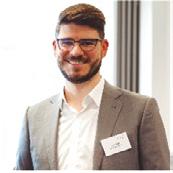

Mentee
Jan-Hendrik Imholze - University Bremen
Mohamed Mokhlef Genady Mohamed – IWTE
Mariam Ouda - Khalifa University
Mike
Miguel-Angel
Tom Ruiter - University of Bremen
If you wish to be a mentor or mentee, please contact us info@idrawater.org.
Jan-Hendrik Imholze University of Bremen, Germany
Mohamed Mokhlef Genady Mohamed IWTE, Egypt
Tom Ruiter University of Bremen, Germany
Mariam Ouda Khalifa University, Abu Dhabi - UAE
Mentor Devesh Sharma 1
Fleming 2
Johnson 3
Liang Ying (Tim), EE King Abdullah University of Science and Technology, Saudi Arabia
Hubert
Jantje
Dixon 4
Sanz 5
Liang Ying (Tim), EE - King Abdullah University of Science and Technology IDRANEWS 76 IDRANEWS
DR. K.C. CHANNABASAPPA
MEMORIAL PHD SCHOLARSHIP 2024-2025 SUBMISSION CLOSES ON MARCH 31ST, 2024
The application process for the Channabasappa Memorial PhD Scholarship for the 2024-2025 academic year is currently open, and the deadline for submission is March 31st, 2024.
This Scholarship program aims to grant up to 10,000 USD to an association member. The recipient should have a focus on conducting research for a thesis related to desalination and water reuse.
Application and requirements can be accessed on our website!
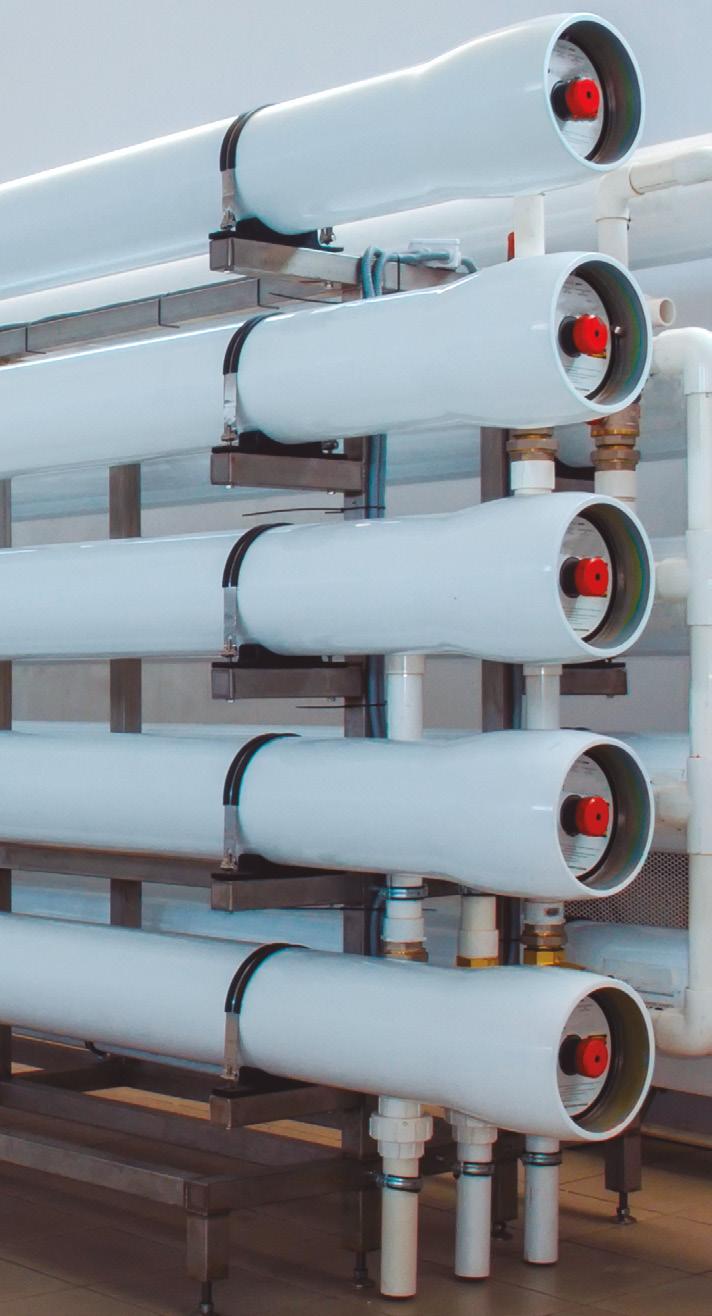
IDRANEWS IDRANEWS 77
TESTIMONIAL STATEMENTS FROM DELEGATES OF THE IDA SEVILLE SUMMIT ON WATER AND CLIMATE CHANGE

I want to express my most sincere compliments for the perfect organization of the event, both for the high-level and the technical sessions but also for the receptions and the field visit in the Hacienda, they were remarkable indeed.
President,

As brine mining is becoming more promising in Saudi (e.g., NEOM), and Australia (e.g., Water Corporation), I suggest to have such seminars in such locations where our customer technical folks (not just senior management folks) can attend such sessions.

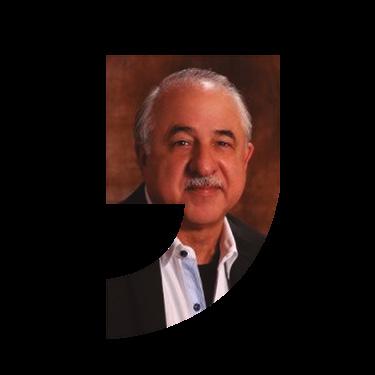
The program and themes were inspirational. Loved the event locations and cultural entertainment - the Flamenco artists were tremendous.
78
Dr. Marco Arcieri
ICID - International Commission on Irrigation and Drainage
Mr. Mark Millan Data Instincts, Public Outreach Consultants
Dr. Avijit Dey WaterTreatment,WaterforHydrogen,Desalination,BrineMiningTechnologyProfessional,Worley
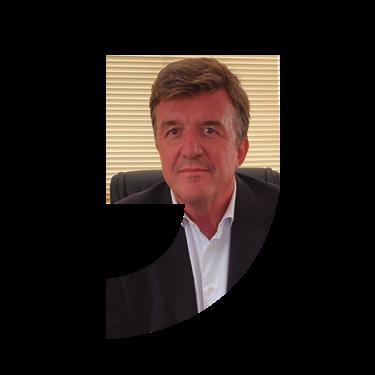
Keep the same level as it is.

Congratulations for all the organization. Social events were very good for networking. Packed agenda during the day, make the daily pitching a bit more challenging.


The locations for the evening events were really good.
Great experience!
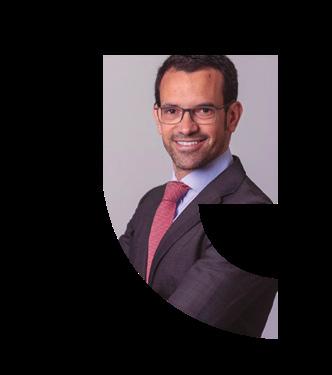
79
Philippe Lambert Executive Director, ACWA Power
Garth Walter Managing Director, Sacyr Water Australia
Mrs.FilipaSilva MarketingManager,DOW
IgnacioCarazo SeniorProjectSalesDesalinationLeader,FlowserveSpain

IDRA / Affiliates/ Partners Upcoming Events
WEX GLOBAL
IDRAisaSupportingPartner
4-6 March 2024
Madrid, Spain
AMTA 2024 MEMBRANE TECHNOLOGY CONFERENCE & EXPOSITION
IDRAAffiliate
4-7 March 2024
West Palm Beach, FL, USA
39TH ANNUAL WATEREUSE SYMPOSIUM
IDRAisaSupportingPartner.
11-14 March 2024
Denver, Colorado
ACADES 2024 CONGRESS
IDRAisaSupportingPartner
20-21 March 2024
Mandarin Oriental Hotel, Santiago de Chile
GLOBAL WATER SUMMIT 2024
IDRAisaMediaPartner
15-17 April 2024
Sofitel London Heathrow, London, United Kingdom
ALADYR INTERNATIONAL CONGRESS MEXICO
IDRAAffiliate
17-18 April 2024
Mexico City, Mexico
SAUDI WATER FORUM
IDRAisanAssociationPartner
29 April – 1 May 2024
Hilton Riyadh Hotel & Residences, Riyadh, KSA

EUROMED 2024
IDRAAffiliate
6-9 May 2024
Four Seasons Hotel, Sharm El Sheikh, Egypt
MIAC CHINA EVENT
IDRAAffiliate
1-3 June 2024
Shanghai, China
BLUETECH FORUM 2024
IDRAisaSupportingPartner
3-4 June 2024
Edinburgh, Scotland
SINGAPORE INTERNATIONAL WATER WEEK
IDRAisaSupportingPartnerandwill conductabusinessforum
18-22 June 2024
Sands Expo & Convention Centre, Marina Bay Sands, Singapore
CARIBDA 2024 BIENNIAL CONFERENCE & EXPOSITION
IDRAAffiliate
9-13 July 2024
Grand Hyatt Baha Mar, Bahamas
WORLD UTILITIES CONGRESS
IDRAisaSupportingPartner
9-11 September 2024
ADNEC, Abu Dhabi, UAE
IDRA WORLD CONGRESS 2024
8-12 December 2024
Abu Dhabi International Exhibition Center (ADNEC)
Check IDRA and Our Affiliates Events Here
80 IDANEWS
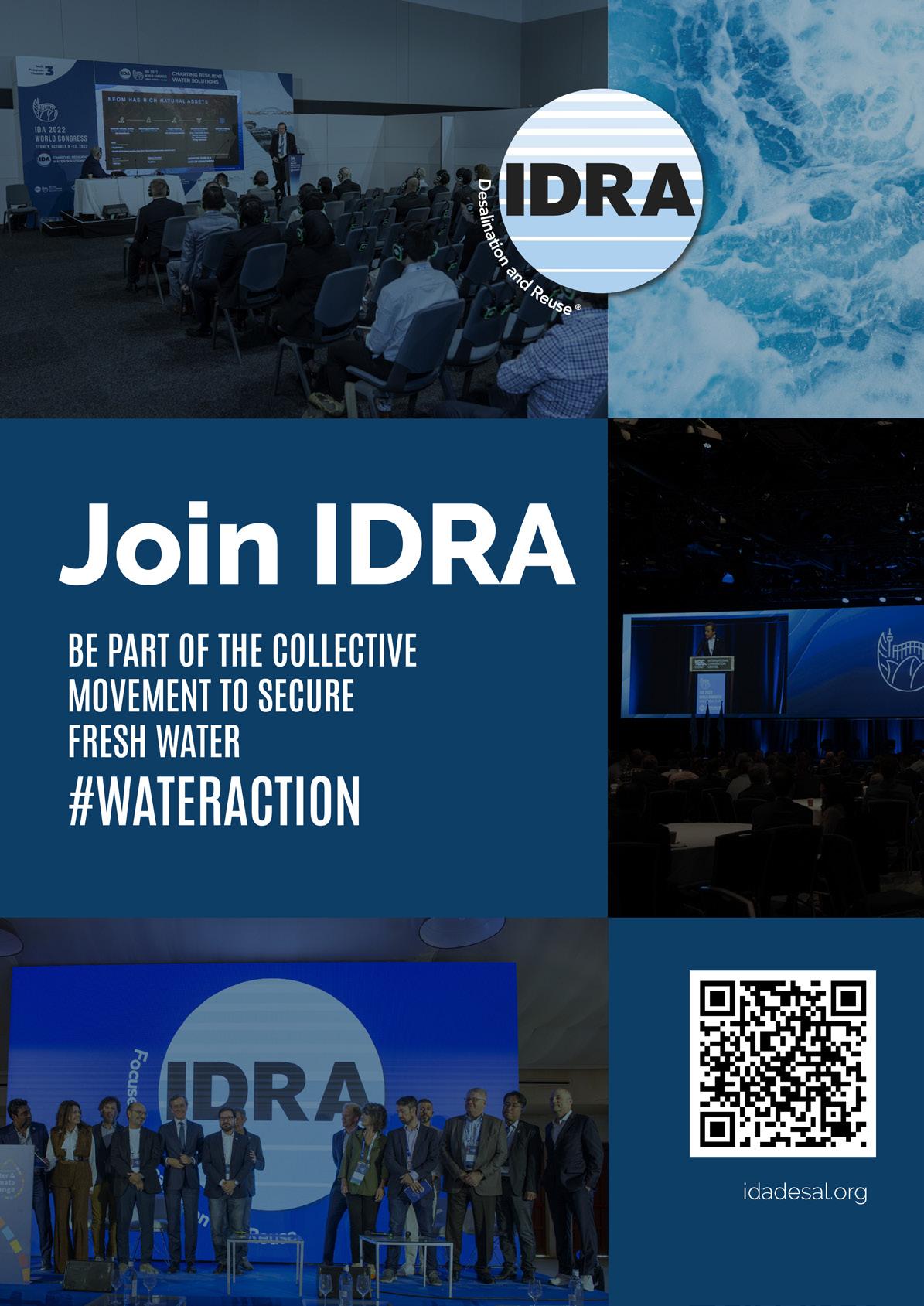
81 IDRANEWS IDRANEWS
IDRA WELCOMES NEW MEMBERS


CAPTURE 6
capture6.org
Capture6 offers a game-changing technology that removes CO2 from the atmosphere while producing additional freshwater for local communities. Our projects lie at the nexus between carbon removal and water security, addressing both symptoms and sources of climate change.
Our integrated approach to carbon management also supports the circular economy and builds resilience for communities by addressing water scarcity, expanding energy access, and creating local jobs.
Capture6 facilities can be readily adapted to generate clean, green by-products, such as green hydrogen, lithium, or other industrial chemicals to decarbonize other processes, transforming carbon removal from a cost center into a revenue-generating opportunity with wide environmental impacts.
PRONOE EARTH
www.pronoe.earth/
PRONOE develops automated water treatment systems that are seamlessly integrated downstream from industrial sites. Using electricity, return flows to the sea are processed into less acidic or more alkaline flows in compliance with current applicable regulations.
PRONOE issues high-quality CO2 removal certificates while effectively mitigating coastal acidification and leveraging third-party infrastructure.
IDRANEWS 82 IDRANEWS
IDRA WELCOMES NEW MEMBERS

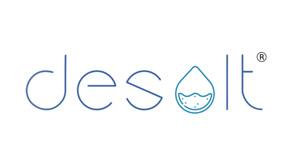
DESAL TECH
www.desalt-tech.com
Desalt Tech Group is a leading manufacturer of reverse osmosis (RO) membrane filters and specialty membranes. We specialize in the research and development, manufacturing, and sales of high-quality membranes that meet the growing demands of various industries.
Our commitment to quality and innovation has helped us establish ourselves as a trusted provider of filtration solutions. With years of experience and expertise, we have developed a diverse range of products that cater to the needs of different applications.
Our product range includes RO membrane filters, nanofiltration (NF) membranes, ultrafiltration (UF) membranes, and specialty membranes. These membranes are used in a wide range of applications, such as water treatment, food and beverage production, pharmaceutical manufacturing, and many more.
IDRANEWS IDRANEWS 83

Connecting People and Ideas to Water Solutions Address 100 Conifer Hill Drive Suite 108 Danvers, MA 01923 USA Phone +1-978-774-0959 Web www.idadesal.org


































































 Dr. Mohamed Saleh Alhadhrami
Standards Energy & Water Efficiency Section, Department of Energy Abu Dhabi
Dr. Mohamed Saleh Alhadhrami
Standards Energy & Water Efficiency Section, Department of Energy Abu Dhabi




























































































